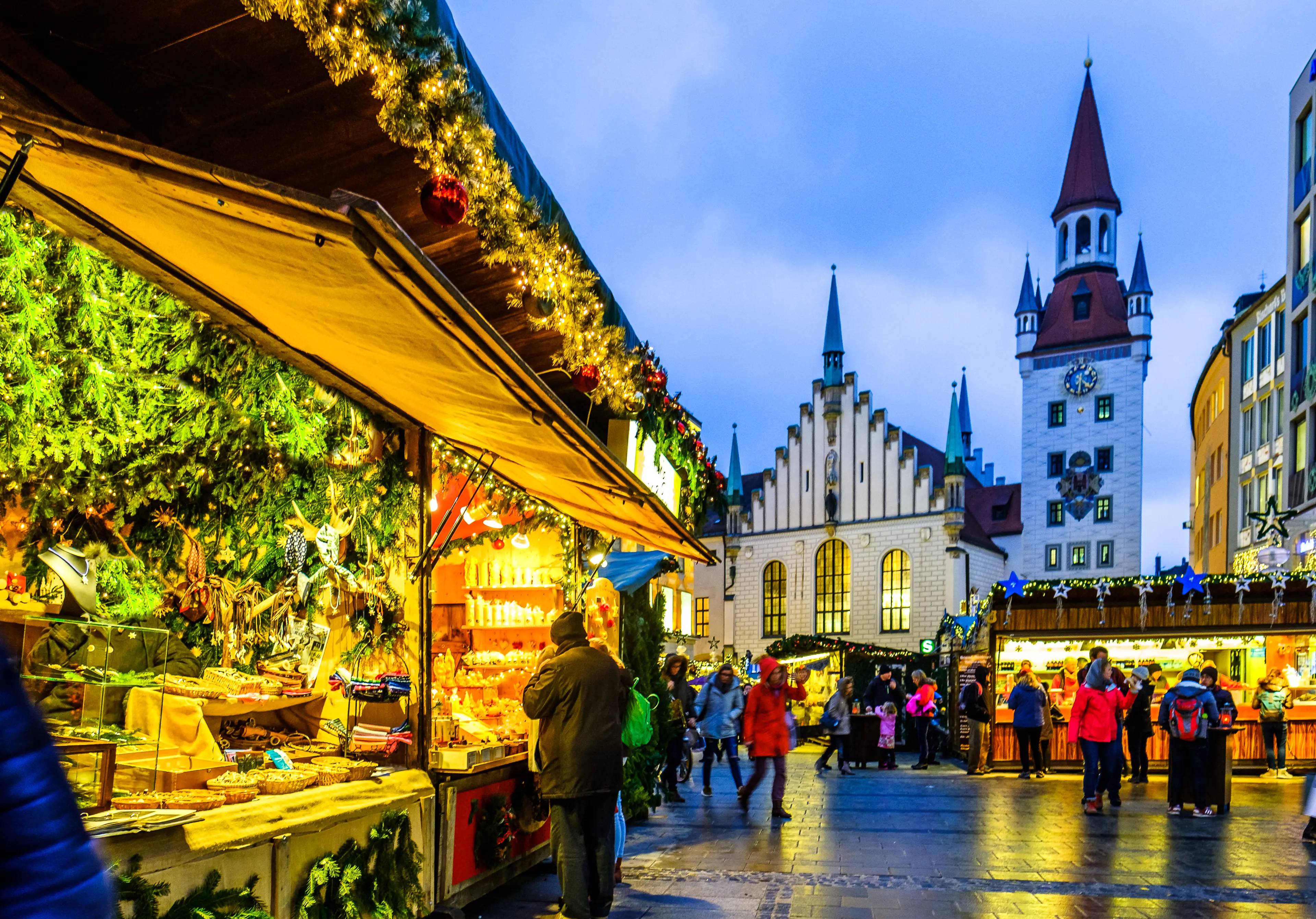Explore Munich, Germany in One Marvelous Day
Munich, Germany
1 days
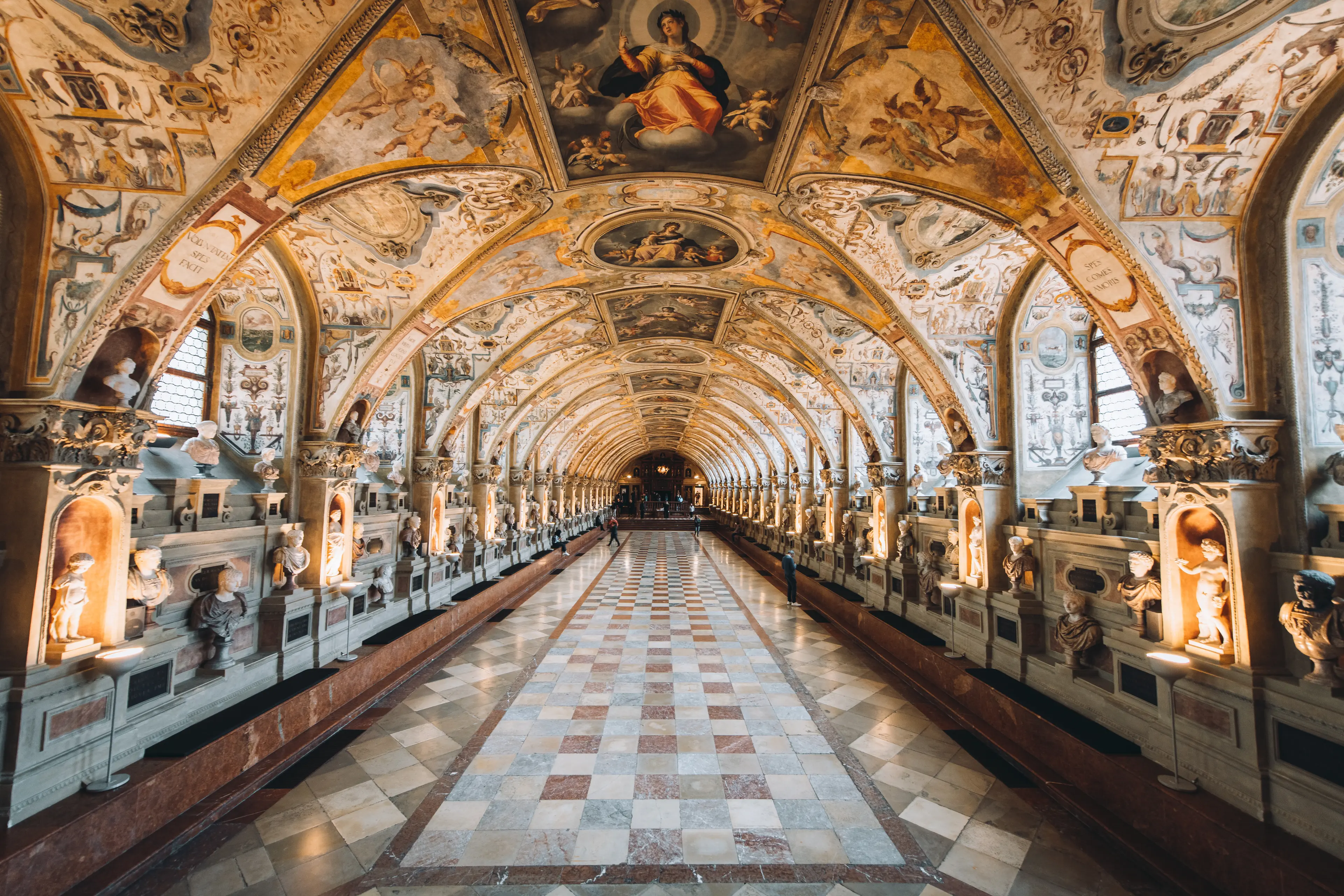
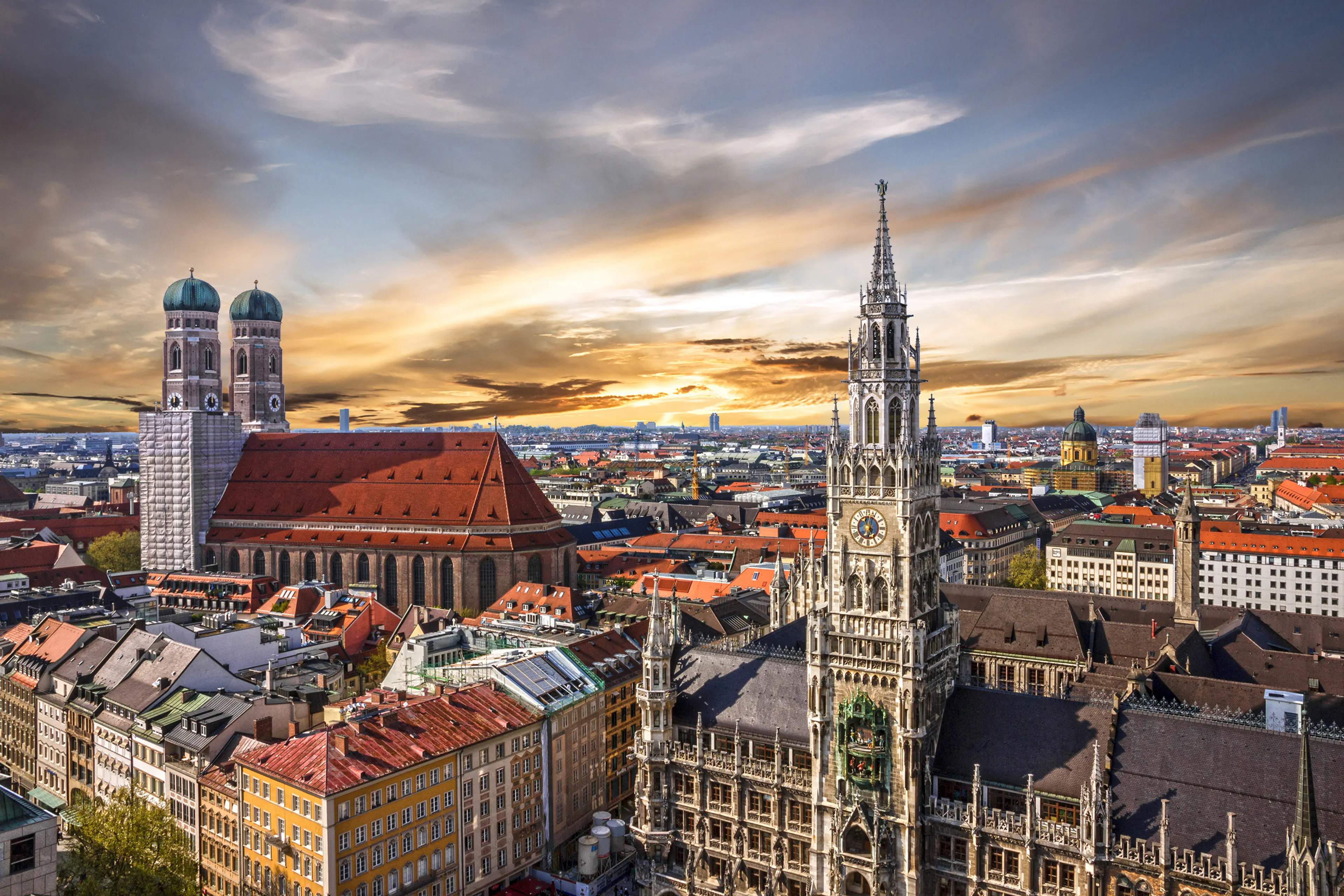
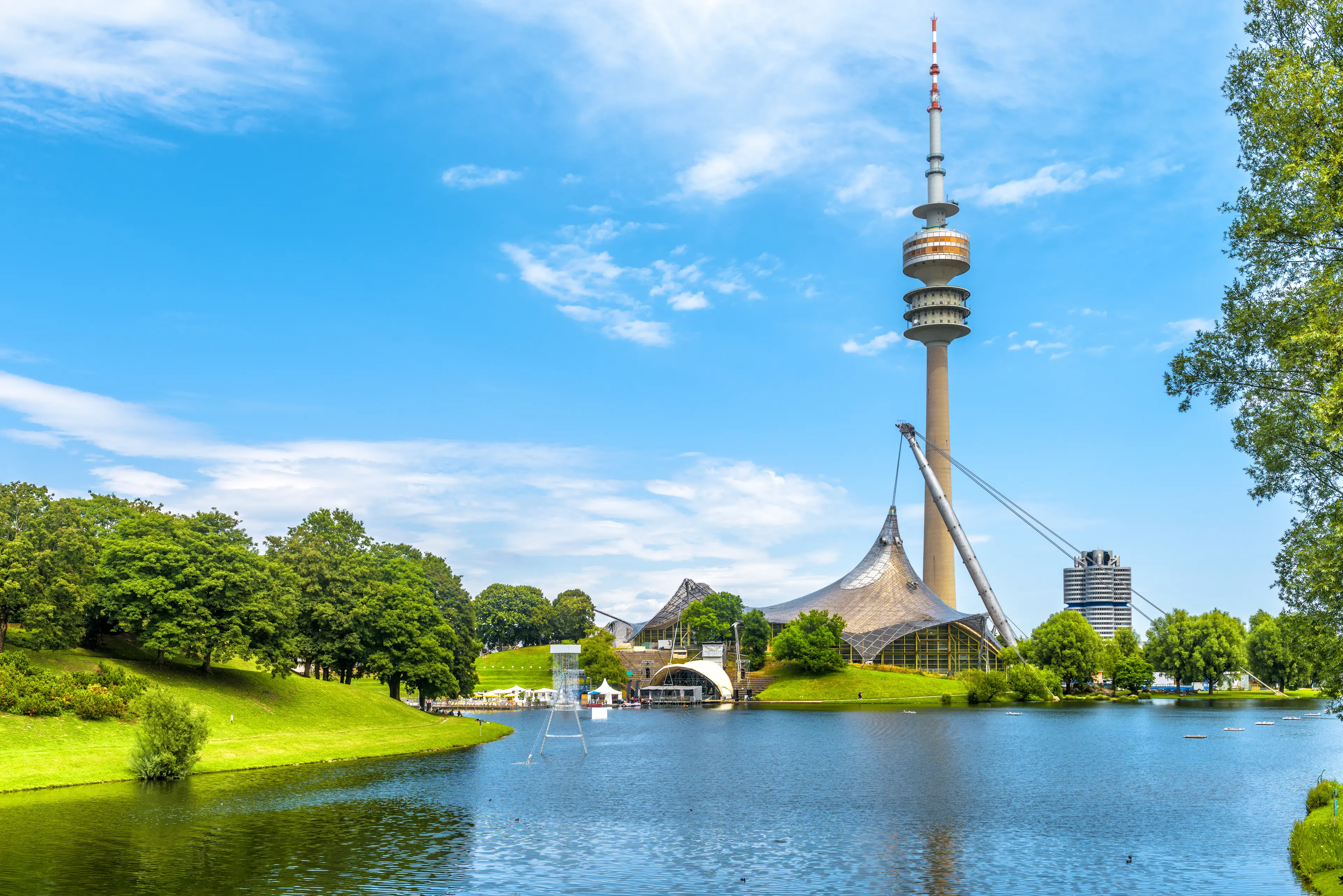
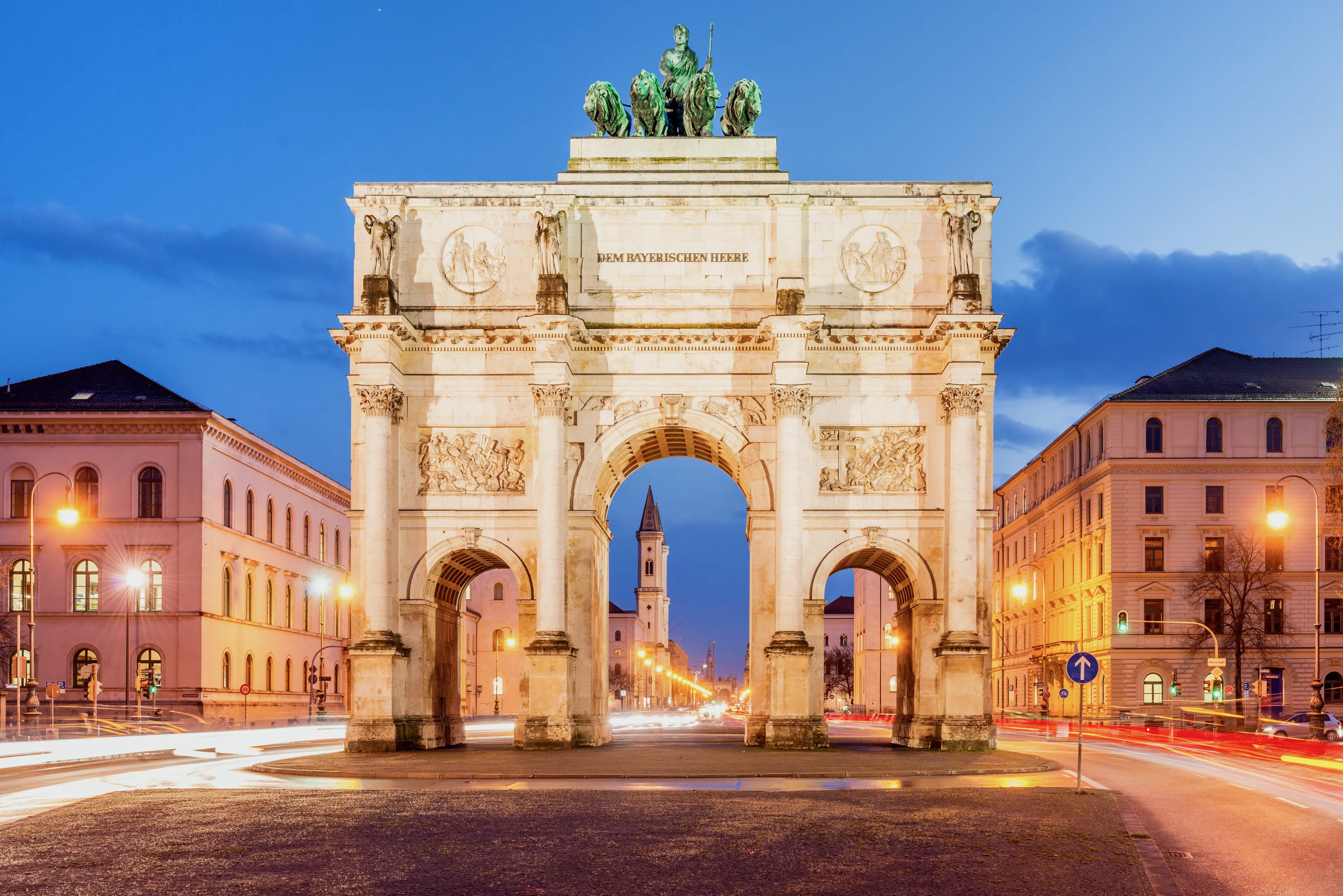
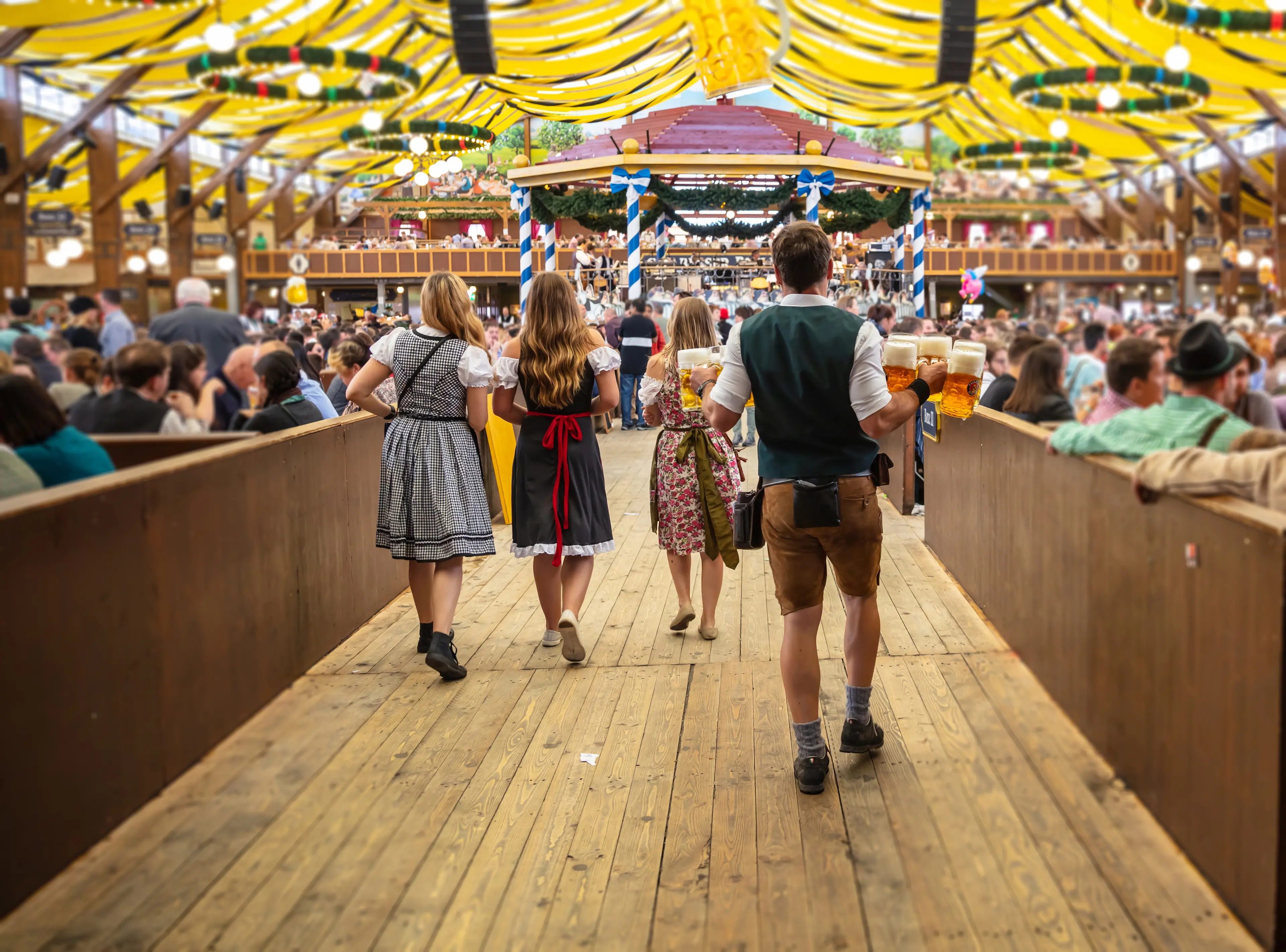
About Munich, Germany
Experience the heart of Bavaria in Munich, Germany. This city is a blend of traditional German culture and modern lifestyle. Visit the iconic Marienplatz, showcasing the city's Gothic architecture, or explore the vast English Garden, one of the world's largest urban parks. Munich is also home to world-class museums like the Deutsches Museum and the Pinakothek art galleries. Don't miss the chance to taste authentic Bavarian cuisine in the bustling Viktualienmarkt or enjoy a beer in the famous Hofbräuhaus. For history enthusiasts, a trip to the Dachau Concentration Camp Memorial Site is a must. Munich is also the gateway to the Bavarian Alps, making it an ideal base for outdoor enthusiasts. Whether you're a history buff, a foodie, or an art lover, Munich has something for everyone.
1-Day Itinerary
Attractions in Itinerary (7)

1Marienplatz
Central square in the city center of Munich, Germany since 1158.
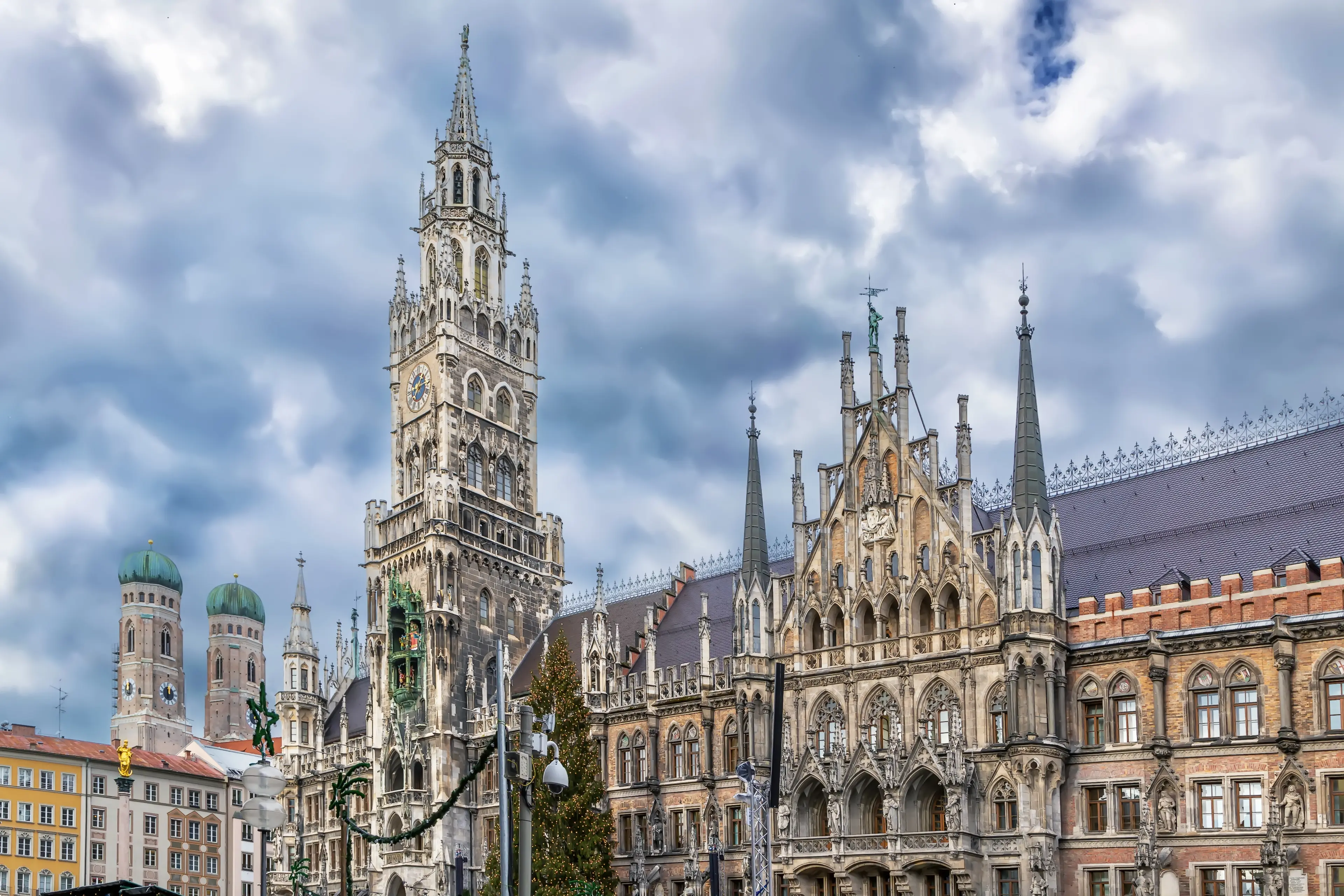
2New Town Hall
A town hall at the northern part of Marienplatz in Munich, Bavaria, Germany.

3Old Town Hall
The Old Town Hall, until 1874 the domicile of the municipality, serves today as a building for the city council in Munich.
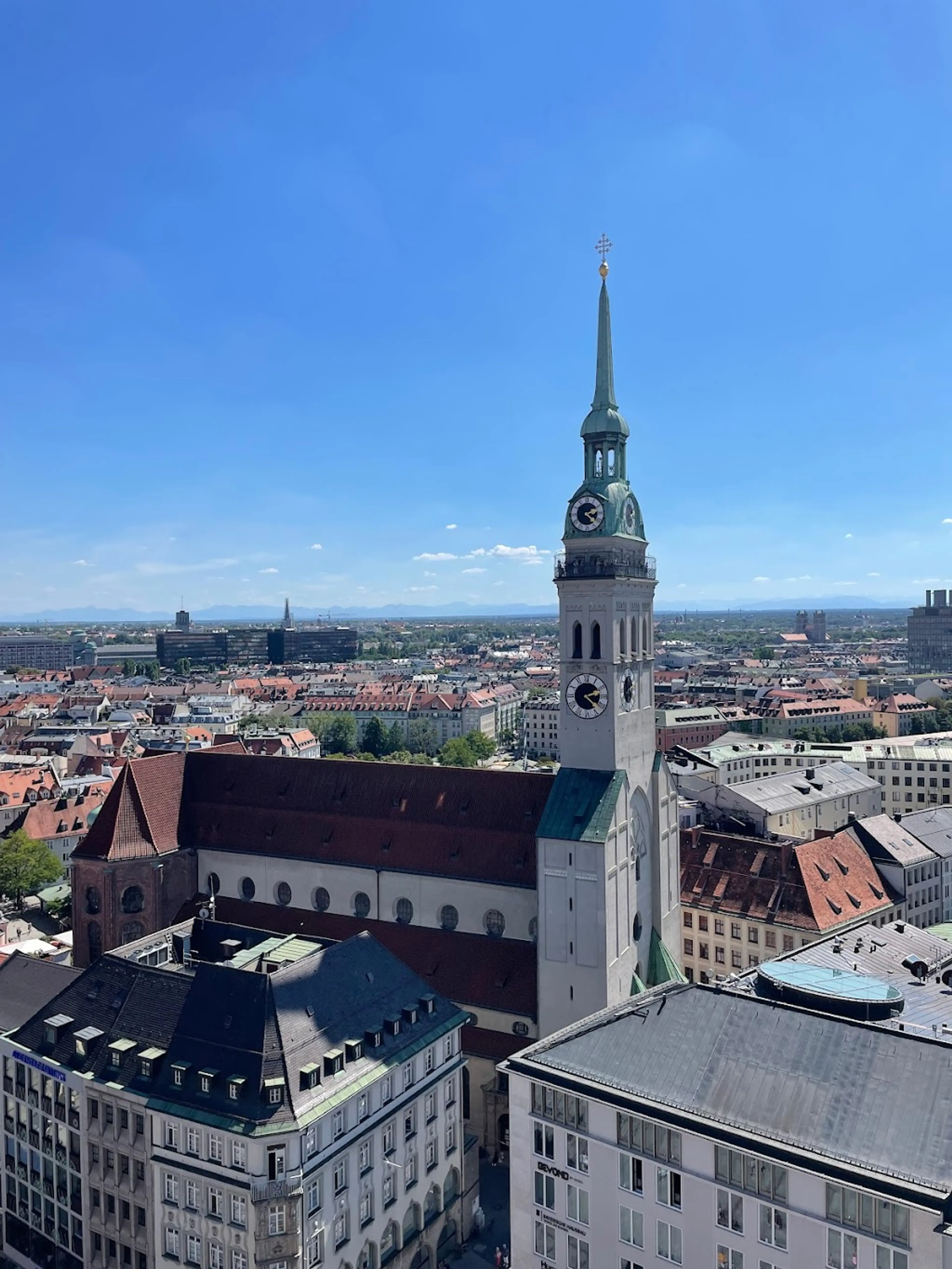
4St. Peter's Church
A Roman Catholic church in the inner city of Munich, also called Alter Peter.
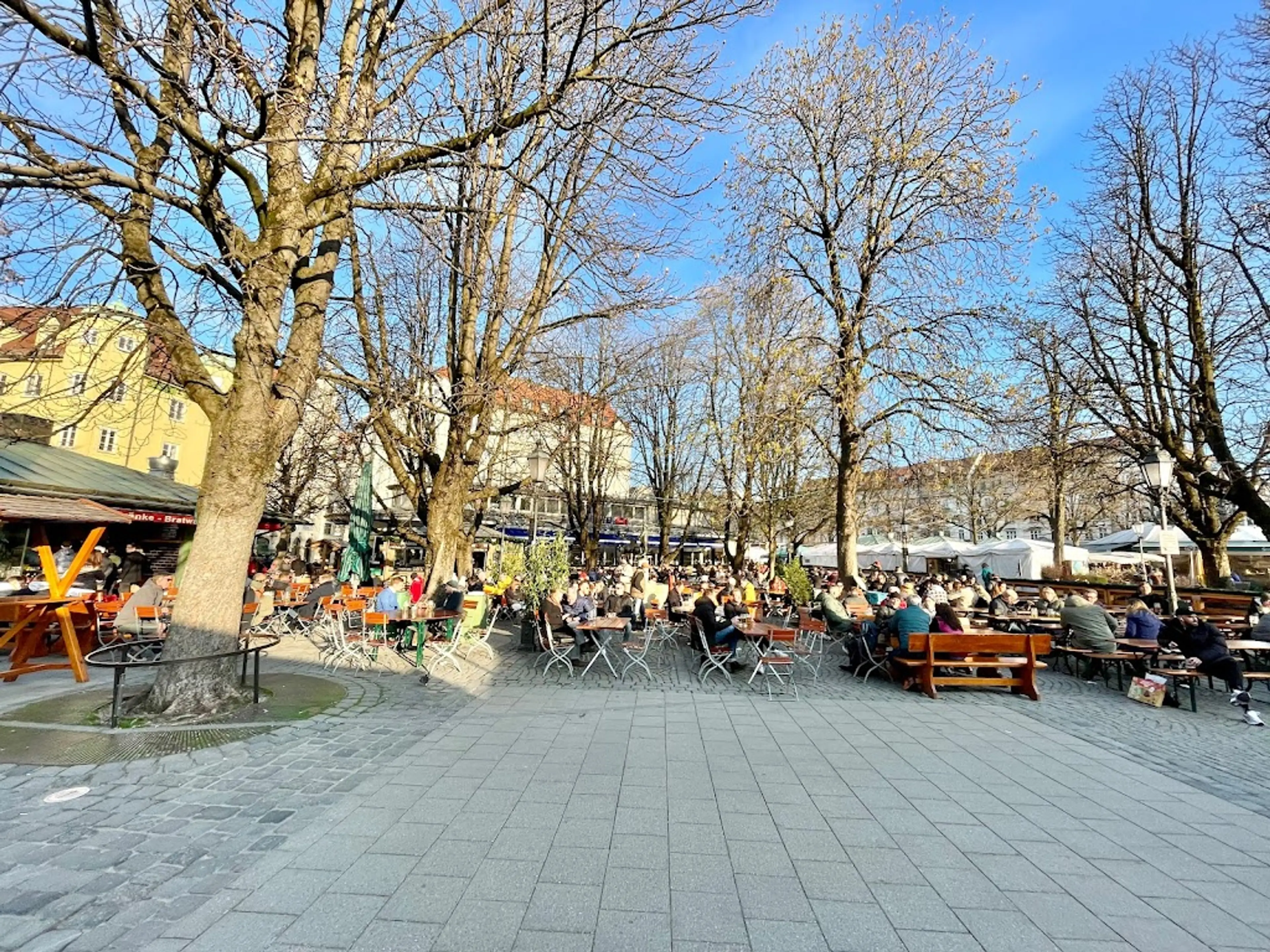
5Beer Garden
Beer gardens are a traditional type of outdoor restaurant in Munich where beer and local food are served.
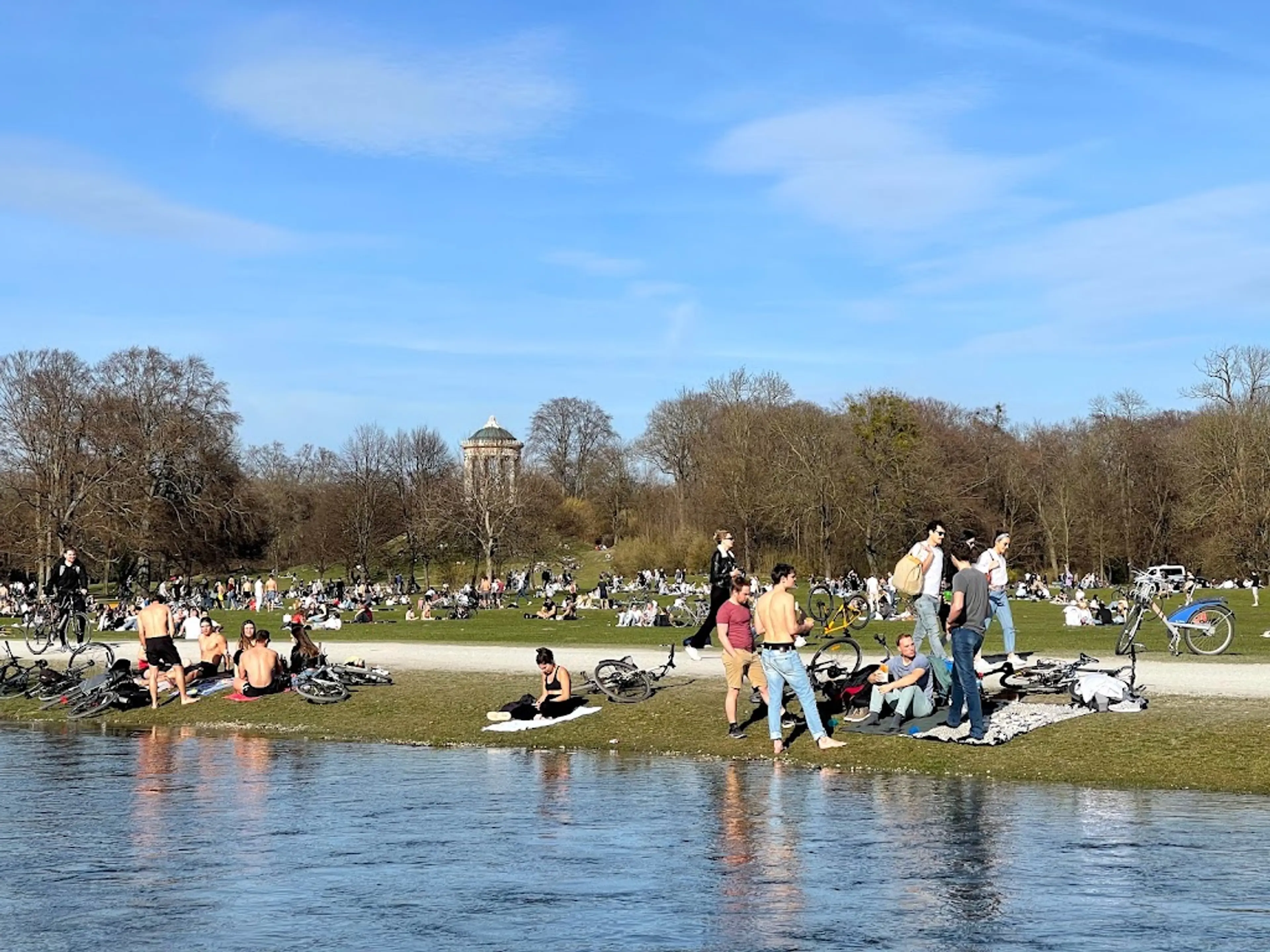
6English Garden
A large public park in the center of Munich, stretching from the city center to the northeastern city limits.

7Hofbräuhaus
One of Munich's oldest beer halls, offering traditional Bavarian music and food in a historic setting.
Local Food and Drinks (12)
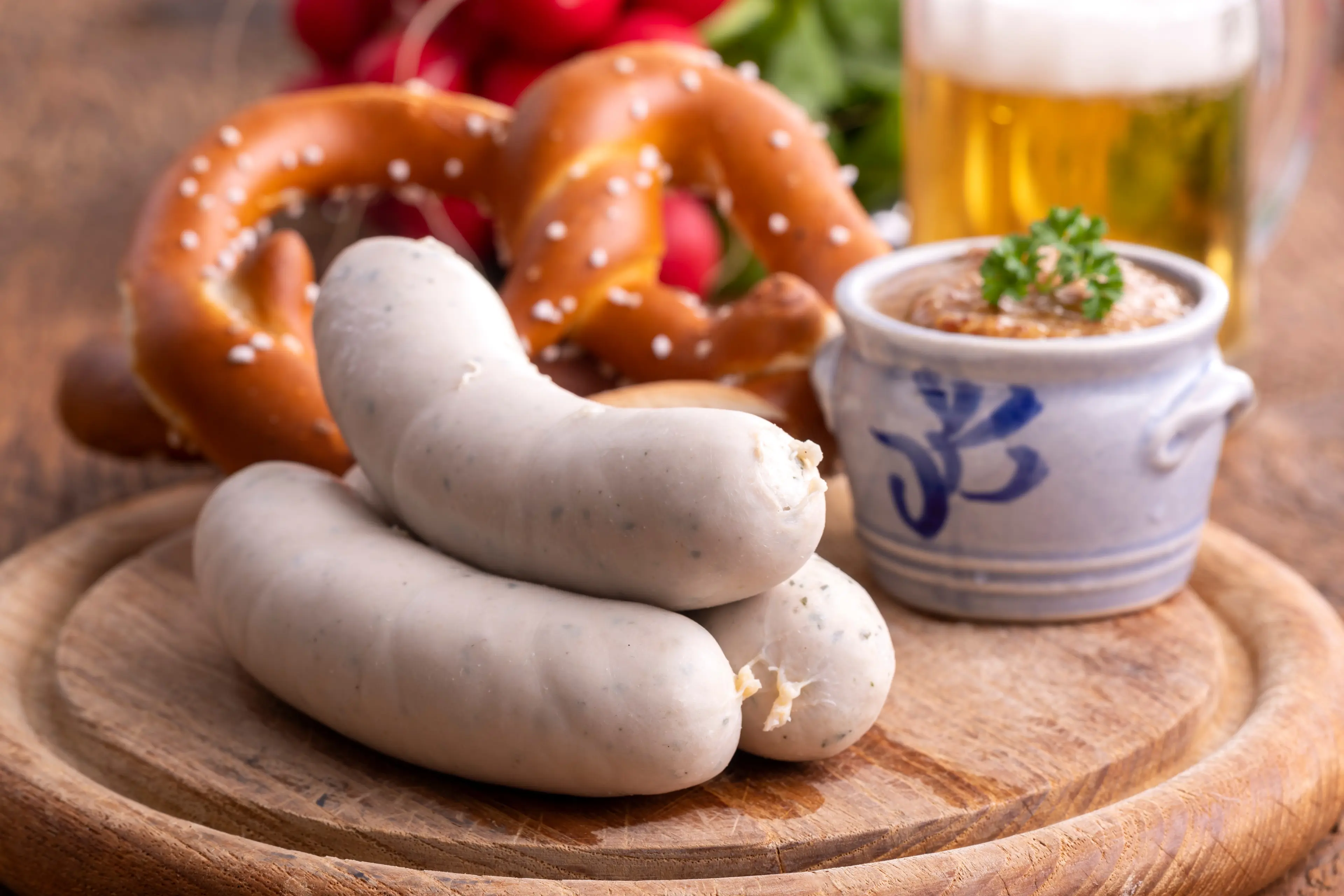
Weisswurst
A traditional Bavarian sausage made from minced veal and pork back bacon. It is usually flavored with parsley, lemon, mace, onions, ginger, and cardamom. It's a breakfast staple in Munich.
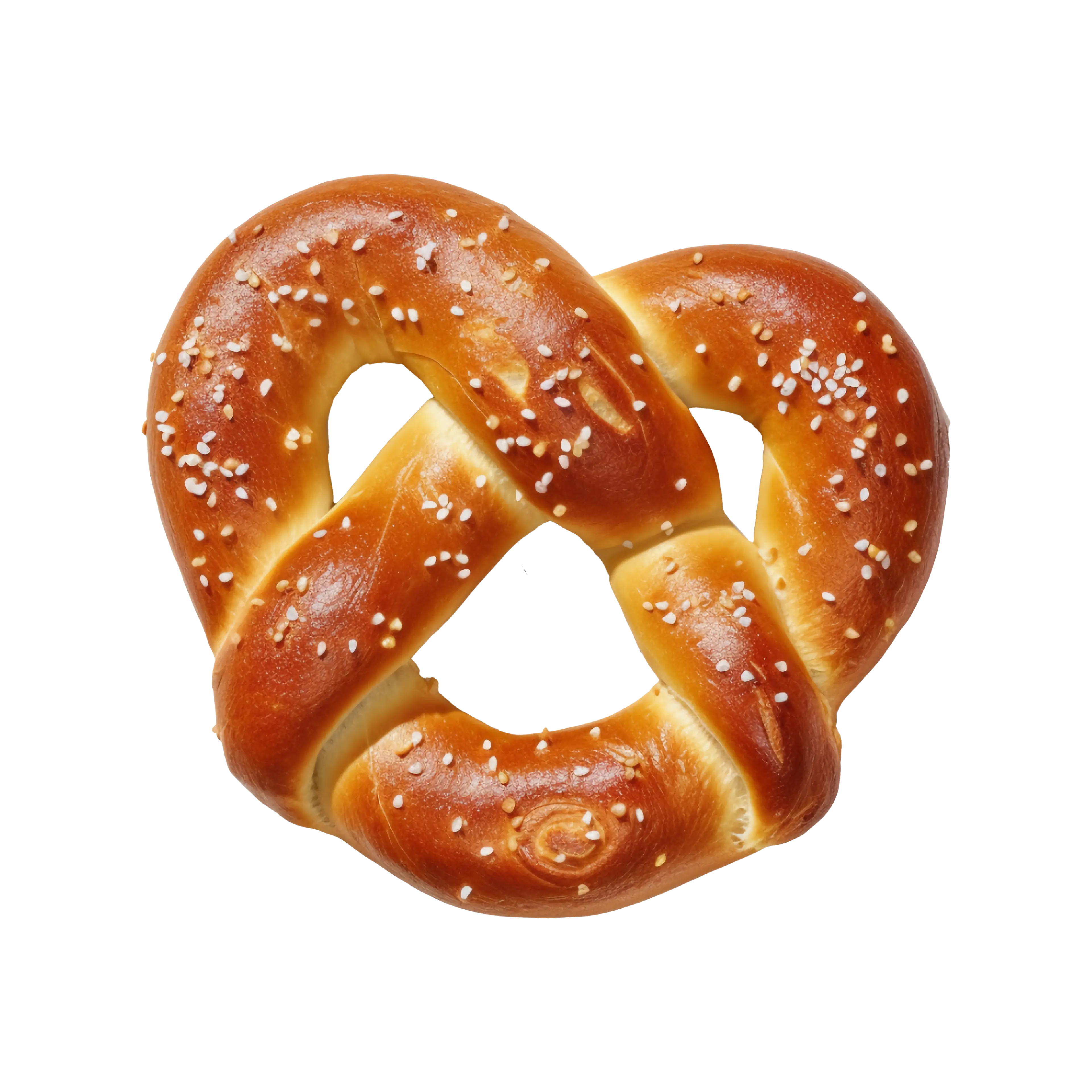
Pretzel
Known as 'Brezel' in Germany, it's a type of baked bread product made from dough most commonly shaped into a twisted knot. It's a popular snack in Munich, often enjoyed with beer.
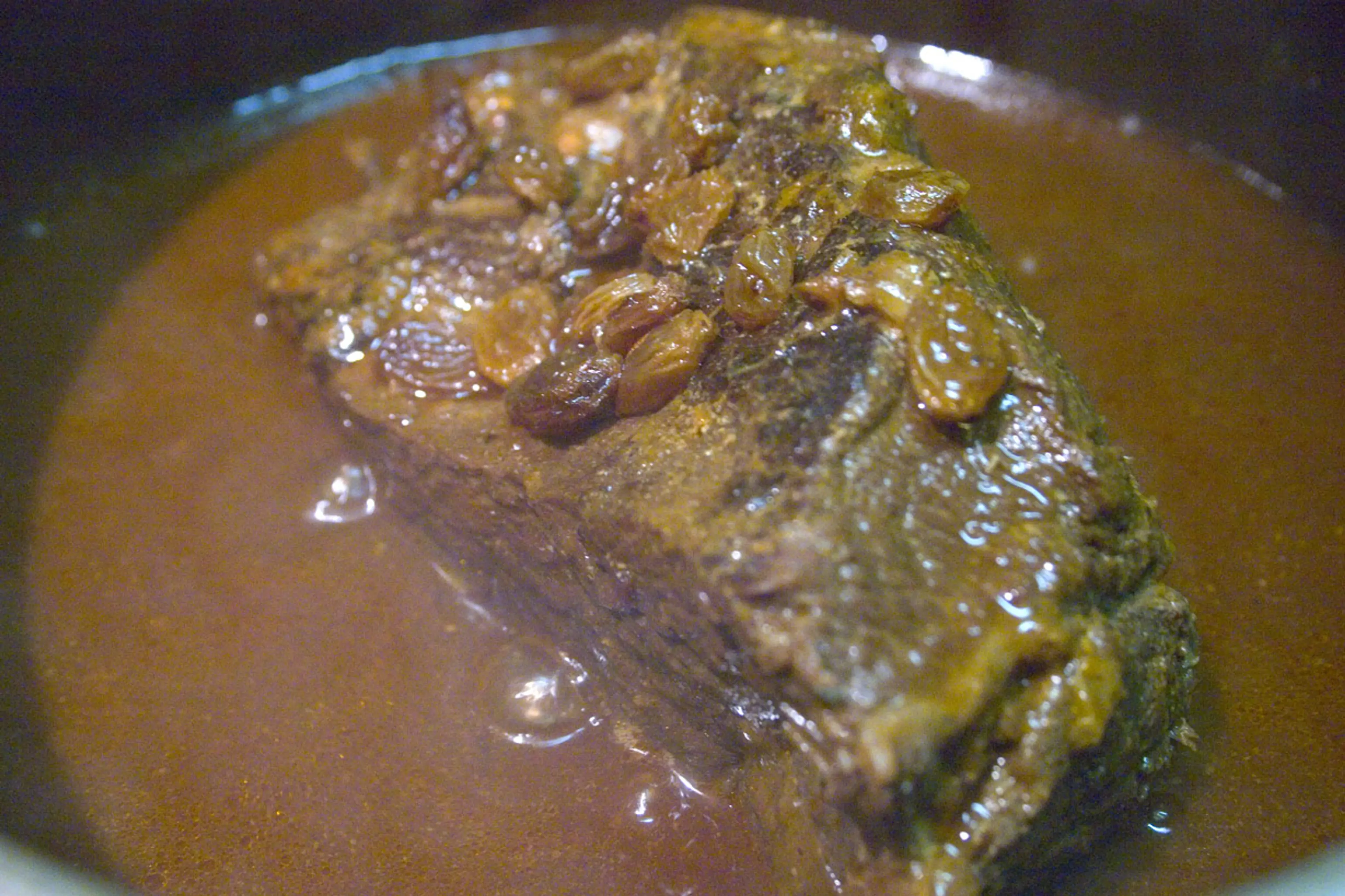
Sauerbraten
A pot roast, usually of beef, marinated before being slow-cooked. It's a national dish of Germany and a must-try for visitors in Munich.
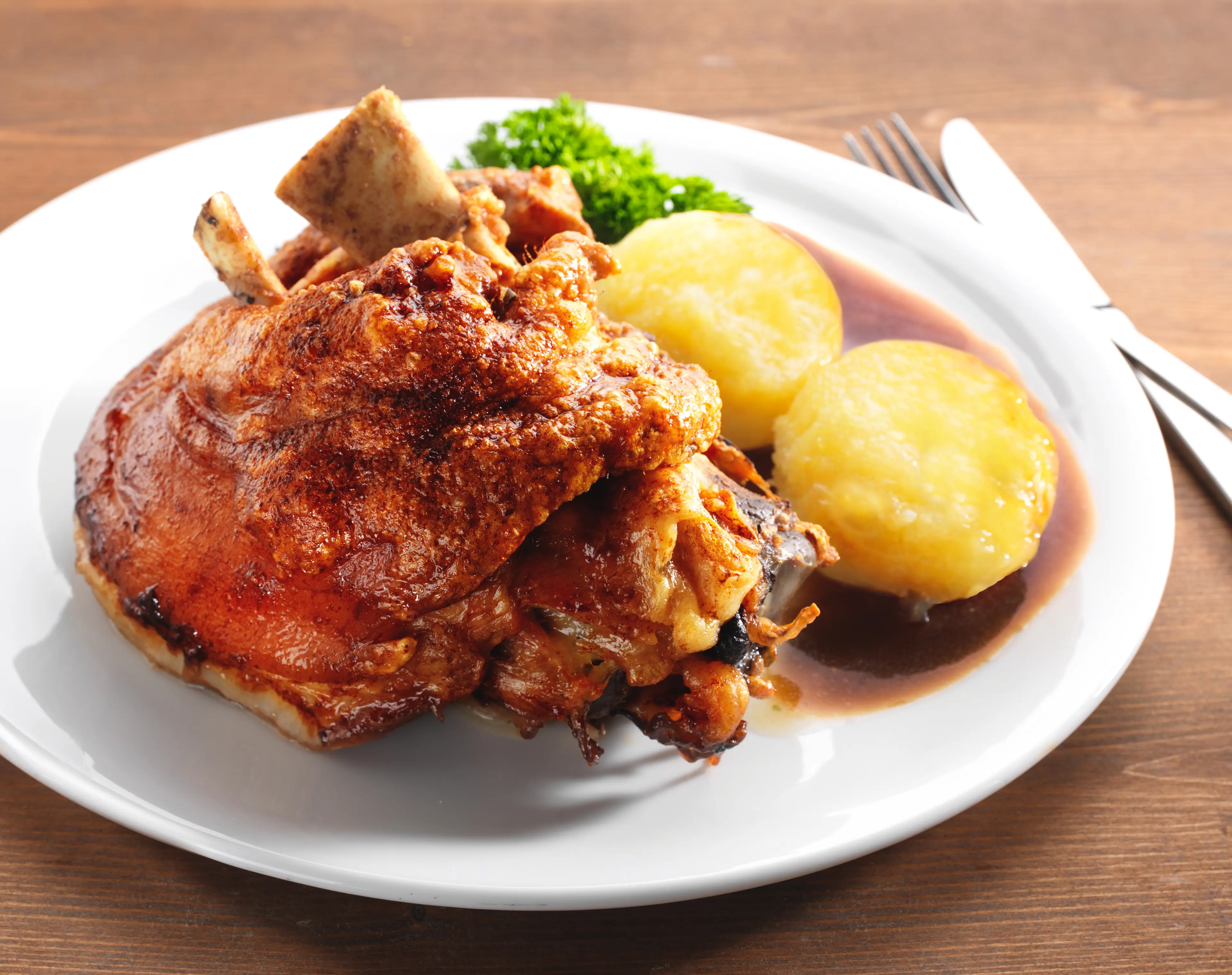
Schweinshaxe
A large pork knuckle roasted till it's crispy on the outside and tender on the inside. It's a Bavarian specialty and a common sight in Munich's beer gardens.
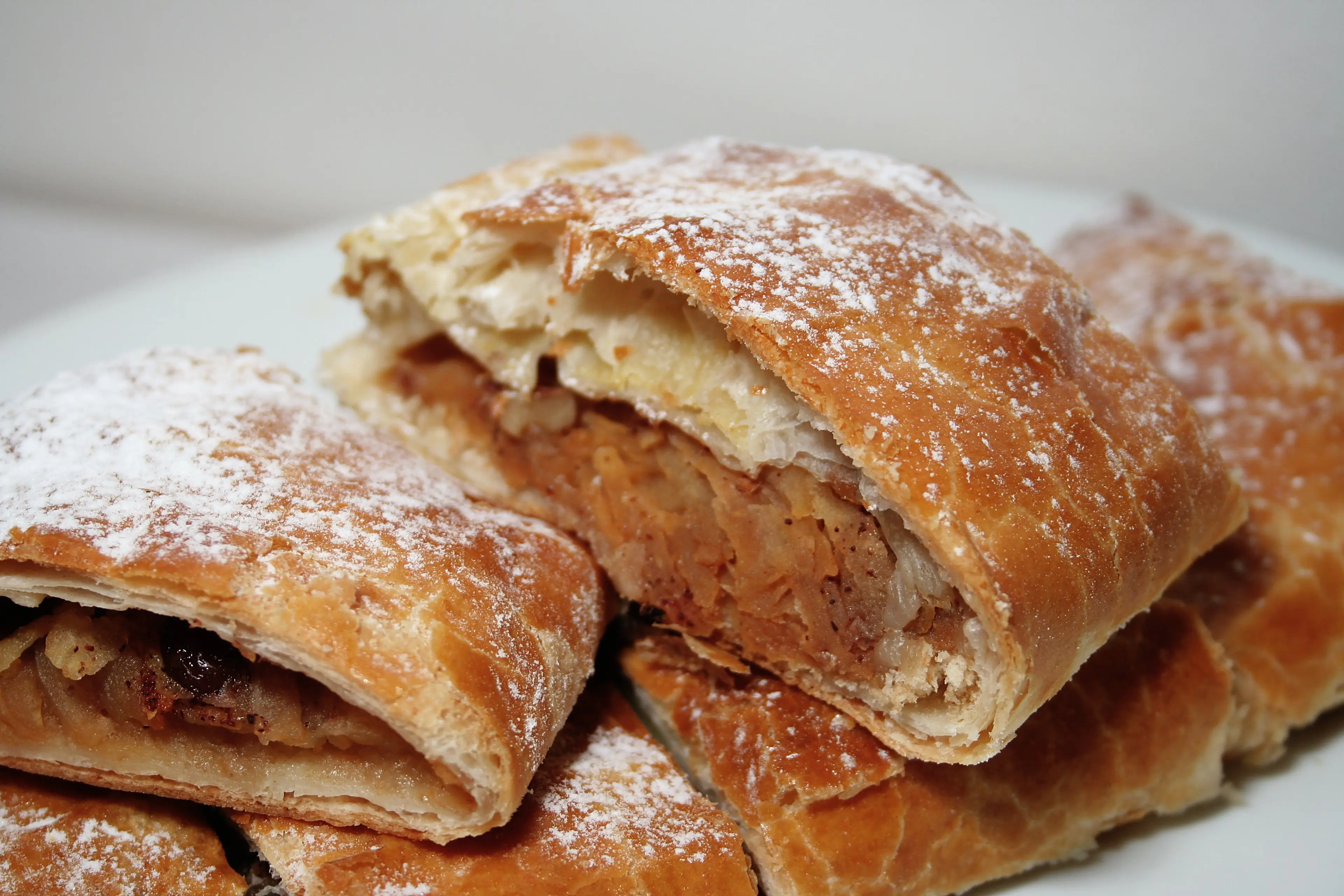
Apfelstrudel
A traditional Viennese strudel, a popular pastry in Munich. It's filled with apples, sugar, cinnamon, raisins, and bread crumbs.

Bratwurst
A type of German sausage made from pork, beef, or veal. It's a common street food in Munich, often served with mustard and a piece of bread or a roll.
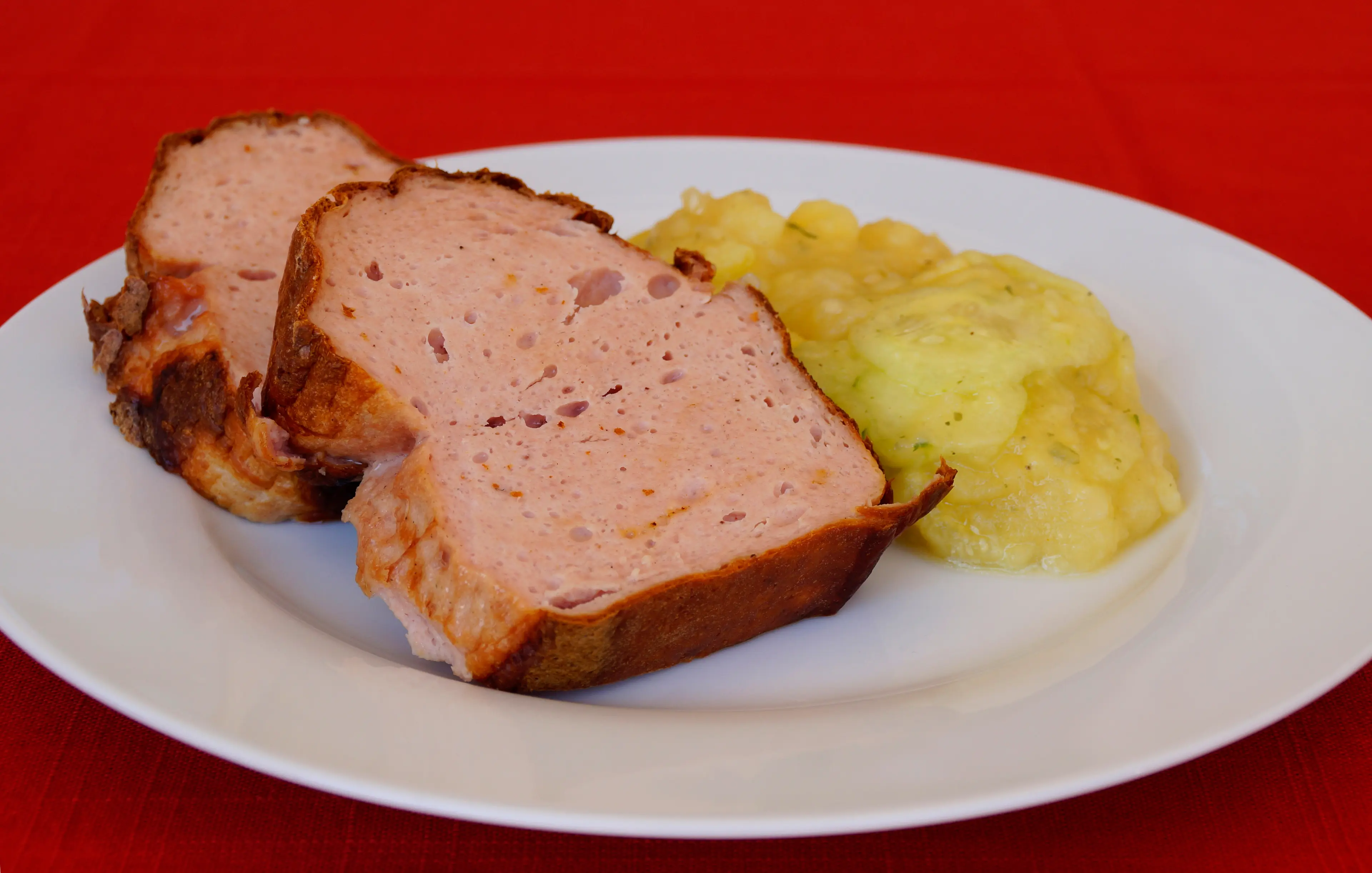
Leberkäse
A specialty food found in the south of Germany, in particular Bavaria. It's a type of baked sausage made from corned beef, pork, bacon and onions.
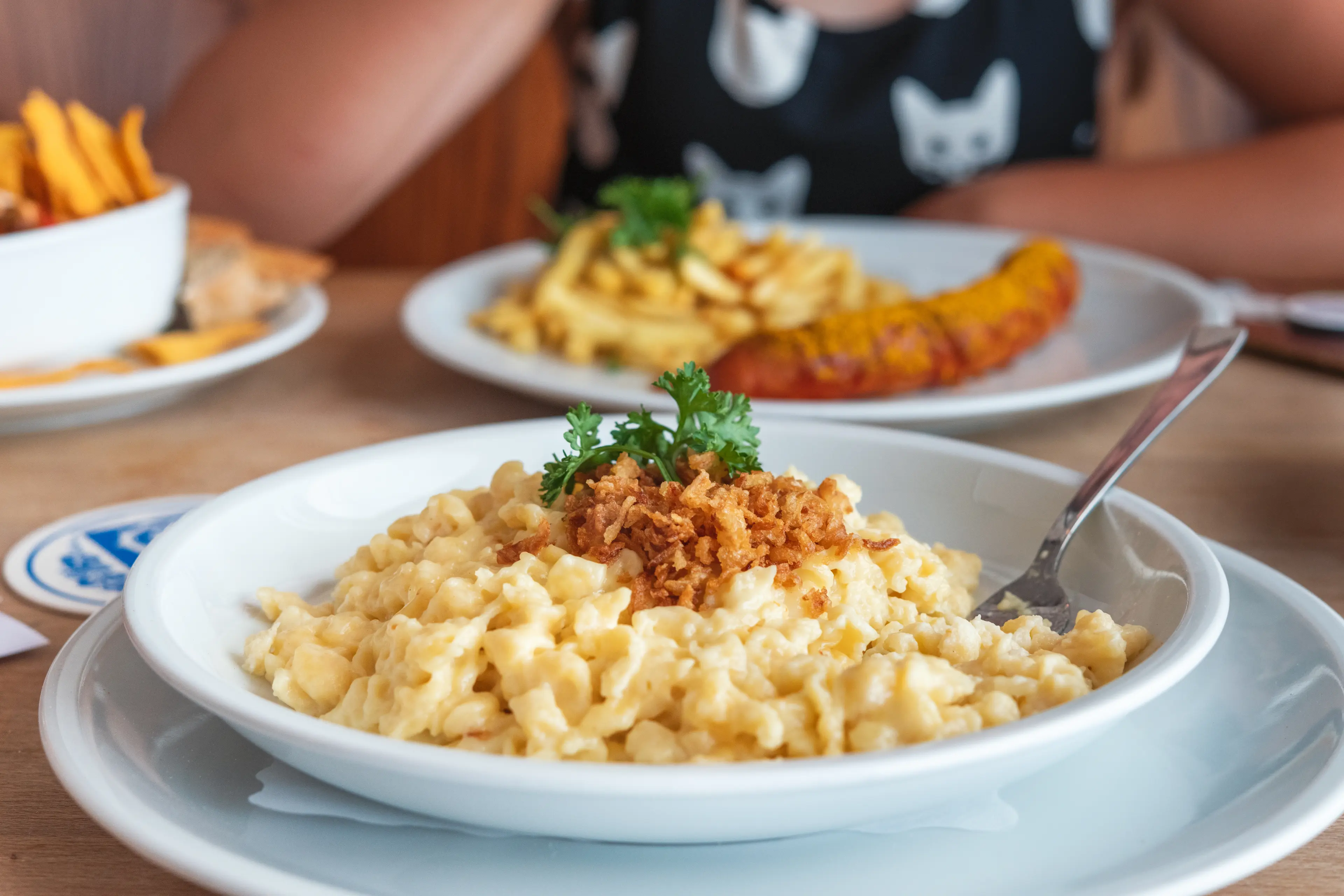
Käsespätzle
A traditional Swabian dish that has made its way to Munich. It's a German version of mac and cheese, made with egg noodles and a variety of cheeses.
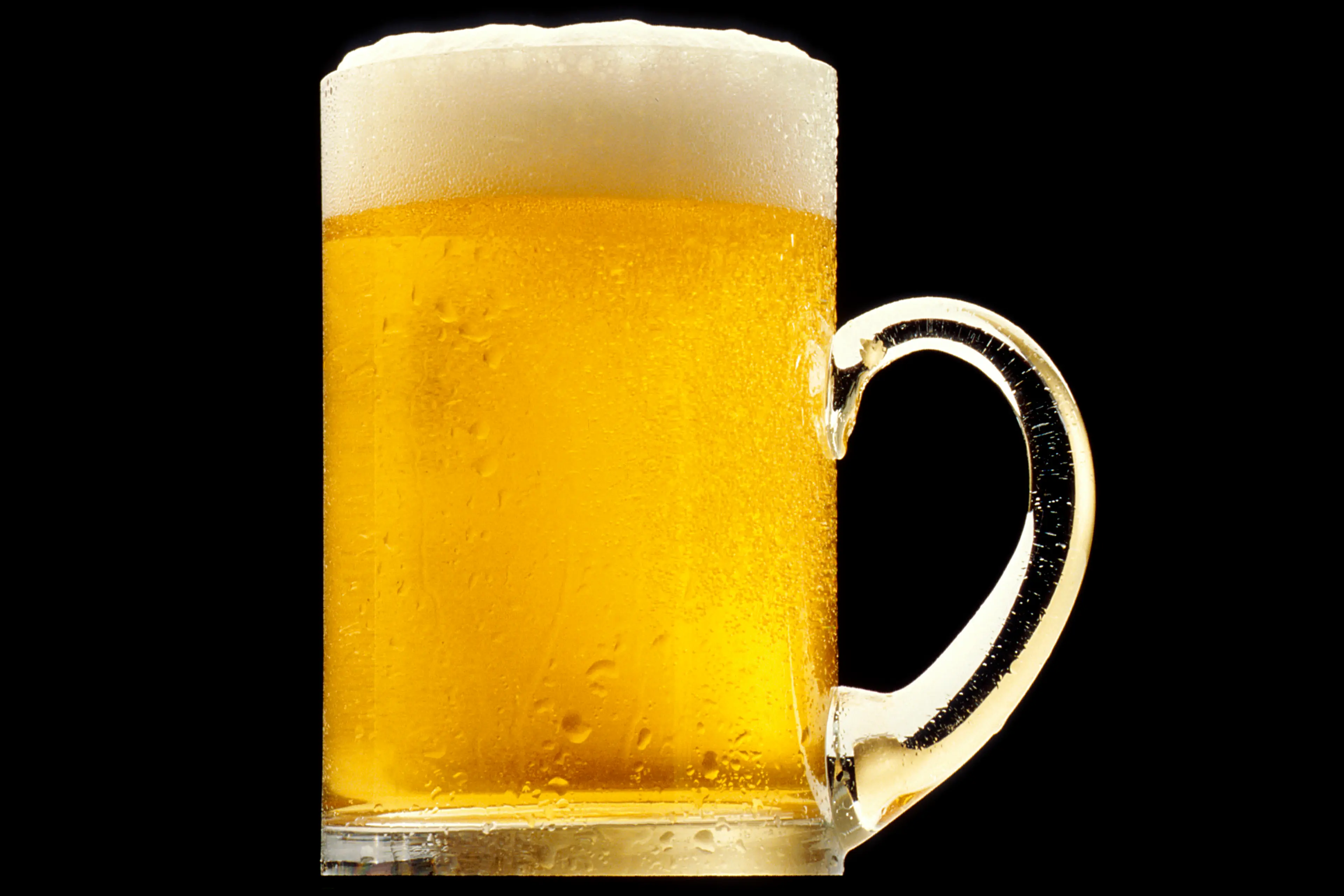
Beer
Munich is famous for its breweries and beer gardens. The city is known for its lagers, wheat beers, and bocks. Oktoberfest, the world's largest beer festival, is held annually in Munich.
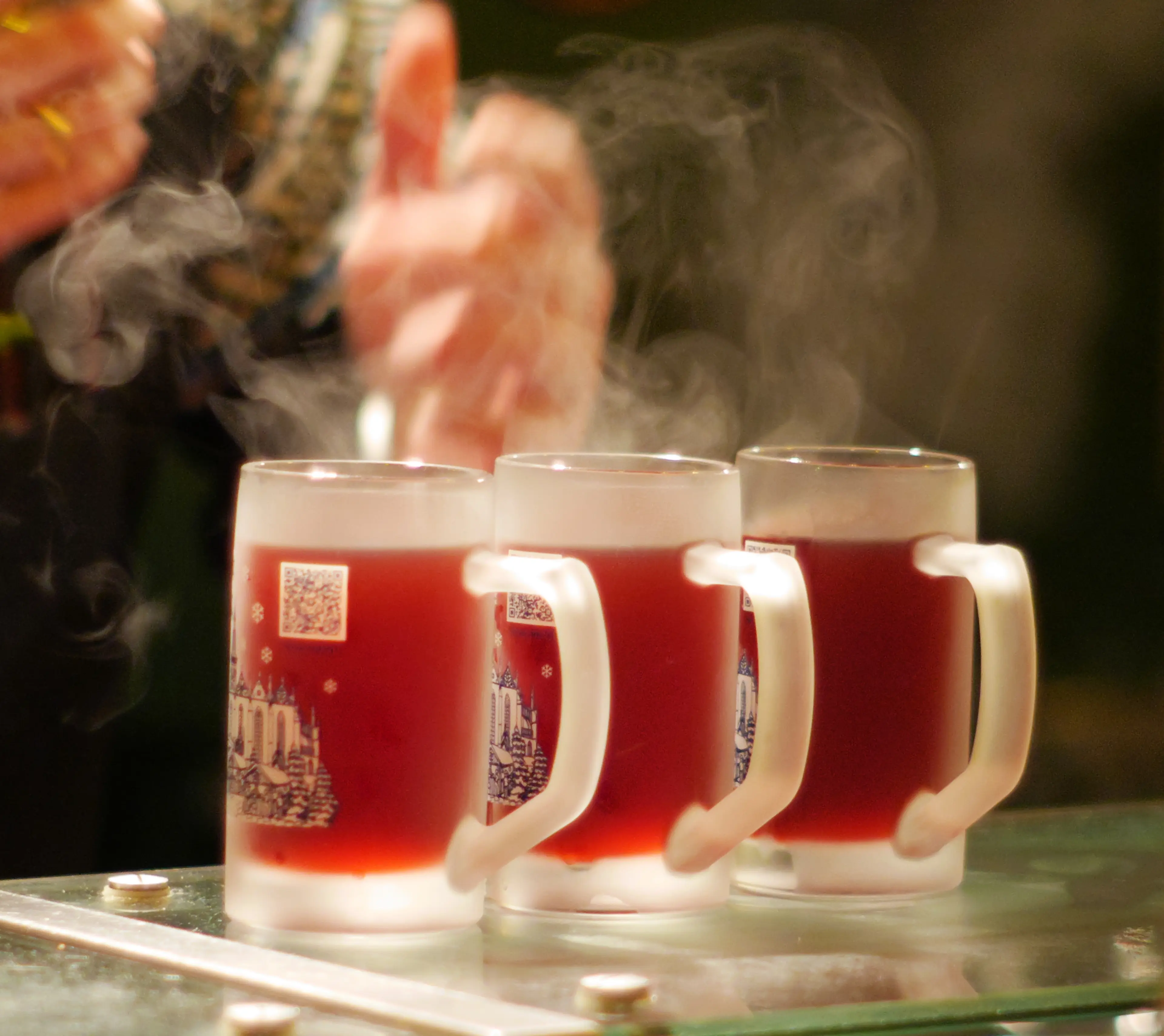
Glühwein
A mulled wine served hot, especially during the winter and Christmas markets in Munich. It's made with red wine, citrus fruits, and spices.
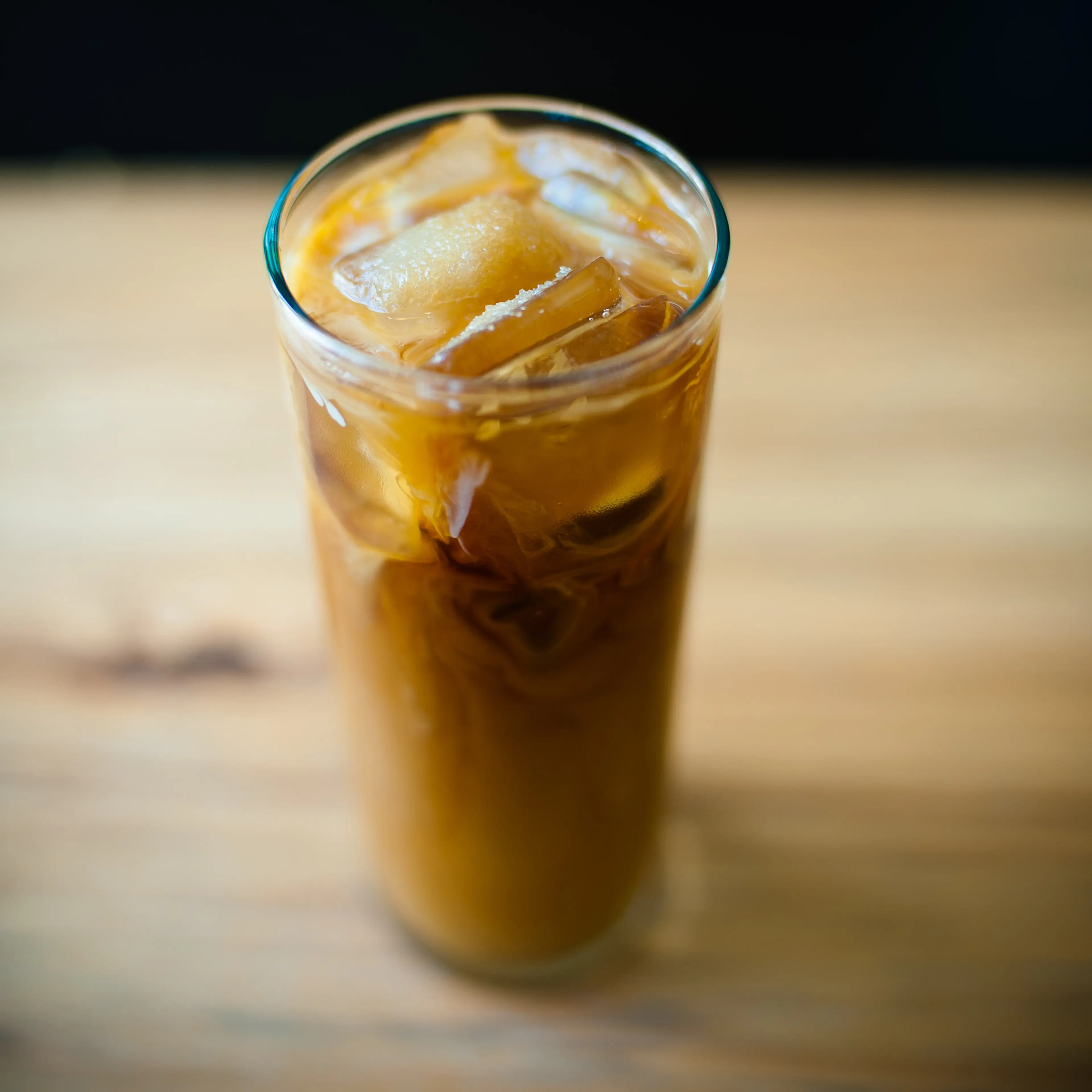
Eiskaffee
A popular summer drink in Munich. It's essentially cold coffee with vanilla ice cream, whipped cream, and sometimes chocolate sprinkles.
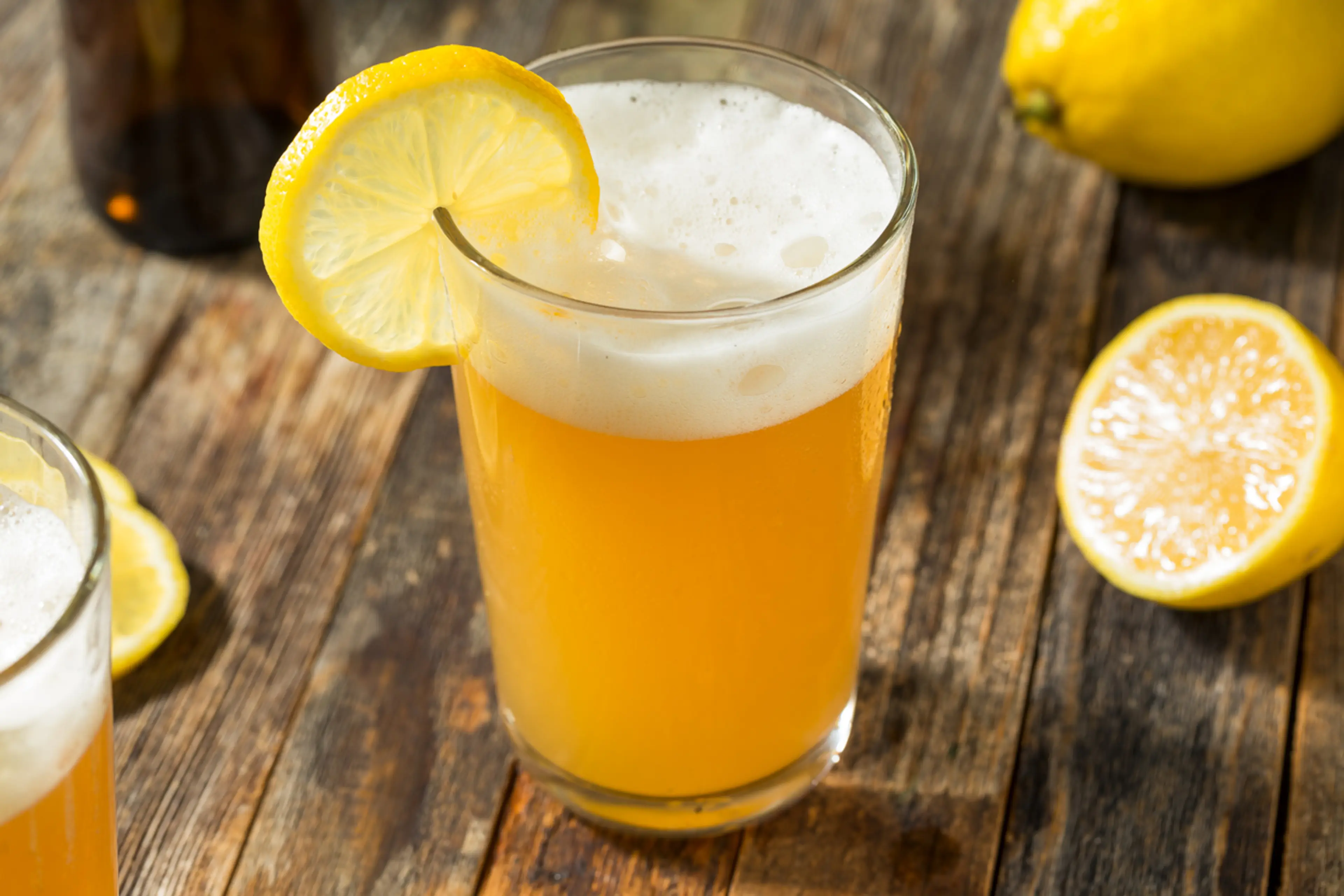
Radler
A refreshing beer-based mixed drink. It's a combination of beer (usually a light lager) and sparkling lemonade, popular in Munich, especially during the summer months.
Best time to visit
The best time to visit Munich, Germany is from late spring to early autumn, specifically between May and September. During these months, the weather is warm and pleasant, perfect for sightseeing and outdoor activities. Additionally, the famous Oktoberfest beer festival typically takes place from late September to the first weekend in October, attracting tourists from around the world. However, if you're a fan of winter sports or Christmas markets, December could also be a great time to visit.
How to get around
U-Bahn (Subway)
Munich's U-Bahn system is a comprehensive and efficient way to get around the city. It operates from early morning until late at night, with reduced services on weekends and holidays. There are eight lines (U1 to U8) serving most parts of Munich.
S-Bahn (Suburban Train)
The S-Bahn is a network of suburban trains that connect Munich with its surrounding areas. It's also a convenient way to reach the city center from Munich Airport. The S-Bahn operates from early morning until late at night, with reduced services on weekends and holidays.
Tram
Munich's tram network is an efficient and scenic way to get around the city. Trams usually operate from early morning until midnight, with some lines offering 24-hour service.
Bus
Buses complement the U-Bahn, S-Bahn, and tram services in Munich, reaching areas of the city that are not served by rail. Night buses operate after the regular services have ended, ensuring that you can get around the city at any time.
Bicycle
Munich is a bike-friendly city with many dedicated bike lanes and paths. You can rent a bike from one of the many bike rental shops in the city, or use the MVG Rad, a bike sharing service operated by Munich's public transport company.
Car
Driving in Munich can be challenging due to heavy traffic and limited parking. However, car rental services are available if you prefer to drive. Remember to abide by the local traffic rules and regulations.
Taxi
Taxis are readily available in Munich, and can be hailed on the street, booked by phone, or picked up from designated taxi ranks. They offer a convenient, though more expensive, way to get around the city.
Ridesharing
Ridesharing services, such as Uber, are available in Munich. They can be a convenient and cost-effective way to get around the city, especially if you're traveling with a group or have a lot of luggage.
Foot
Many of Munich's attractions are located close to each other in the city center, making walking a viable option. The city is pedestrian-friendly, with plenty of pedestrian zones and parks.
Important information
Currency€ EUR
Time zoneUTC+1
Driving sideRight
Emergency phoneAmbulance and Fire: 112; Police: 110
Drinking waterYes
Power sockets
Voltage230 V
Things to know about Munich, Germany as a first time visitor
1
Munich is located in the southern part of Germany, in the state of Bavaria.
2
The official language is German, but English is widely spoken in most places.
3
The currency used is the Euro (€). Credit cards are widely accepted, but it's always good to carry some cash for smaller establishments.
4
Public transportation in Munich is excellent. It includes the U-Bahn (underground), S-Bahn (suburban trains), trams, and buses.
5
Munich is generally a safe city, but like any major city, it's important to be aware of your surroundings and keep an eye on your belongings.
6
Tipping is customary in Munich. Usually, a tip of 10-15% is expected in restaurants and taxis.
7
The city has a temperate seasonal climate. Summers (June to August) can be warm with temperatures ranging from 68°F to 77°F (20°C to 25°C). Winters (December to February) can be cold with temperatures often dropping below freezing.
8
Munich is known for its beer and breweries. The legal drinking age is 16 for beer and wine, and 18 for spirits.
9
The city is very pedestrian-friendly, and also has an extensive network of bike lanes.
10
Shops in Munich generally close earlier than in many other major cities. Most stores close by 8 PM during the week and are closed on Sundays.
11
Germans are generally punctual and value efficiency. It's important to be on time for appointments or reservations.
12
Munich operates on Central European Time (CET) and observes daylight saving time.
13
The city has a strong recycling culture. Be sure to separate your waste appropriately in public bins.
14
Smoking is prohibited in all public buildings, including bars and restaurants.
15
Tap water is safe to drink and is of high quality.
16
Munich's cuisine is hearty and rich, featuring dishes like pretzels, sausages, and schnitzel.
17
The city is very clean and littering is frowned upon.
18
Munich has a mix of modern and traditional architecture, with many buildings still showing the city's historical roots.
19
Germans value their privacy. It's considered impolite to stare or take photos of people without their permission.
20
Munich is home to many festivals throughout the year, the most famous being Oktoberfest. If you're visiting during a festival, be sure to book accommodations well in advance.
Basic German to know as a first time visitor
English phrase | Native phrase | Pronunciation | When to use it |
|---|---|---|---|
Hello | Hallo | ha-lo | Greeting someone |
Goodbye | Auf Wiedersehen | owf vee-der-zayn | Saying goodbye |
Please | Bitte | bit-te | Making a request |
Thank you | Danke | dahn-ke | Expressing gratitude |
Yes | Ja | ya | Agreeing or confirming |
No | Nein | nine | Disagreeing or denying |
Excuse me | Entschuldigung | ent-shool-dee-goong | Getting attention or apologizing |
I'm sorry | Es tut mir leid | es toot meer lite | Apologizing |
Do you speak English? | Sprechen Sie Englisch? | shpre-shen zee eng-lish | Asking if someone speaks English |
I don't understand | Ich verstehe nicht | ish fer-shtay-uh nikht | Expressing difficulty in understanding |
Where is the bathroom? | Wo ist die Toilette? | vo ist dee toy-let-te | Asking for directions |
Help | Hilfe | hill-fe | Asking for assistance |
I'm lost | Ich habe mich verlaufen | ish ha-be mish fer-low-fen | Expressing that you're lost |
Can I have the menu, please? | Kann ich bitte die Speisekarte haben? | kahn ish bit-te dee shpy-zuh-kar-te ha-ben | At a restaurant |
How much does it cost? | Wie viel kostet das? | vee feel kos-tet das | Asking for the price |
Where is...? | Wo ist...? | vo ist | Asking for directions |
I would like... | Ich möchte... | ish moe-sh-te | Making a request |
Cheers | Prost | prohst | Making a toast |
Good morning | Guten Morgen | goo-ten mor-gen | Greeting someone in the morning |
Good night | Gute Nacht | goo-te nakht | Saying goodnight |
Packing List
Clothing
Comfortable walking shoes
Lightweight clothing
Warm sweater or jacket
Raincoat or umbrella
Sunglasses
Hat or cap
Toiletries
Travel-size toothpaste
Toothbrush
Travel-size shampoo and conditioner
Deodorant
Razor and shaving cream
Travel-size body wash or soap
Sunscreen
Hand sanitizer
Prescription medications
First-aid kit
Travel documents and essentials
Passport
Driver's license or ID card
Credit and debit cards
Cash and coins
Travel insurance documents
Hotel and transportation reservation confirmations
Emergency contacts and addresses
Map of Munich
Electronics and gadgets
Smartphone
Charger for smartphone
Power bank
Headphones or earbuds
Camera
Charger for camera
Travel adapter
Miscellaneous items
Reusable water bottle
Snacks
Travel guidebook for Munich
Notebook and pen
Travel pillow
Earplugs and eye mask
Weather Conditions
Munich, Germany, experiences a temperate seasonal climate, with variations throughout the year that can impact your travel plans. In the winter months, from December to February, Munich can get quite cold, with temperatures often dropping below freezing. Expect average temperatures to range from 27°F to 34°F (-3°C to 1°C). It's not uncommon for the city to be blanketed in snow, so pack warm clothing, including a heavy coat, gloves, and a hat. If you're a fan of winter sports, this is a great time to visit as the nearby Bavarian Alps offer excellent skiing opportunities. Spring, from March to May, sees a gradual warming with temperatures ranging from 37°F to 64°F (3°C to 18°C). This is a beautiful time to visit Munich as the city comes alive with blooming flowers. However, spring can also be quite wet, so don't forget to pack a raincoat or umbrella. Summer, from June to August, is the warmest season with temperatures ranging from 55°F to 75°F (13°C to 24°C). This is a popular time for tourists, so expect larger crowds, especially during the famous Munich Beer Festival. Don't forget to pack sunscreen and a hat to protect against the sun. Autumn, from September to November, sees cooler temperatures ranging from 37°F to 64°F (3°C to 18°C). The city is particularly beautiful during this time as the leaves change color. However, similar to spring, autumn can be quite wet, so packing a raincoat or umbrella is advisable. Regardless of when you visit, it's always a good idea to check the forecast before your trip so you can pack accordingly. Also, keep in mind that weather can change quickly in Munich, so it's always a good idea to have a light jacket or sweater with you. Enjoy your trip to this beautiful city!
| Month | Hi / Lo (°C) | Weather Overview |
|---|---|---|
January | 4° / -3° | January is the coldest month in Munich, with frequent snowfall and icy conditions. Dress warmly and enjoy the winter wonderland. |
February | 6° / -2° | February is still quite cold with occasional snowfall. It's a great time to visit if you enjoy winter sports. |
March | 11° / 1° | March sees the beginning of spring with slightly warmer temperatures. However, there can still be occasional snowfall. |
April | 16° / 4° | April is a pleasant month with the arrival of spring. The city starts to bloom, but there can be occasional showers. |
May | 20° / 8° | May is a beautiful month to visit Munich, with mild temperatures and blooming flowers. However, it can be a bit rainy. |
June | 25° / 11° | June marks the beginning of summer with long, sunny days. It's a great time to explore the city's parks and outdoor attractions. |
July | 27° / 13° | July is the warmest month in Munich, perfect for outdoor activities. However, it can get quite hot, so stay hydrated. |
August | 25° / 13° | August is still quite warm, but with more rainfall. It's a good time to visit museums and indoor attractions. |
September | 21° / 9° | September is a pleasant month with fewer tourists and mild temperatures. It's a great time to enjoy Oktoberfest. |
October | 15° / 5° | October sees the arrival of autumn with cooler temperatures and beautiful fall foliage. It's a good time to visit if you enjoy quieter sightseeing. |
November | 9° / 1° | November is quite cold with the first signs of winter. It's a good time to visit Christmas markets and enjoy indoor activities. |
December | 5° / -1° | December is a magical time to visit Munich with Christmas markets and festive decorations. However, it can be quite cold, so dress warmly. |
Did you know?
Places near by Munich, Germany
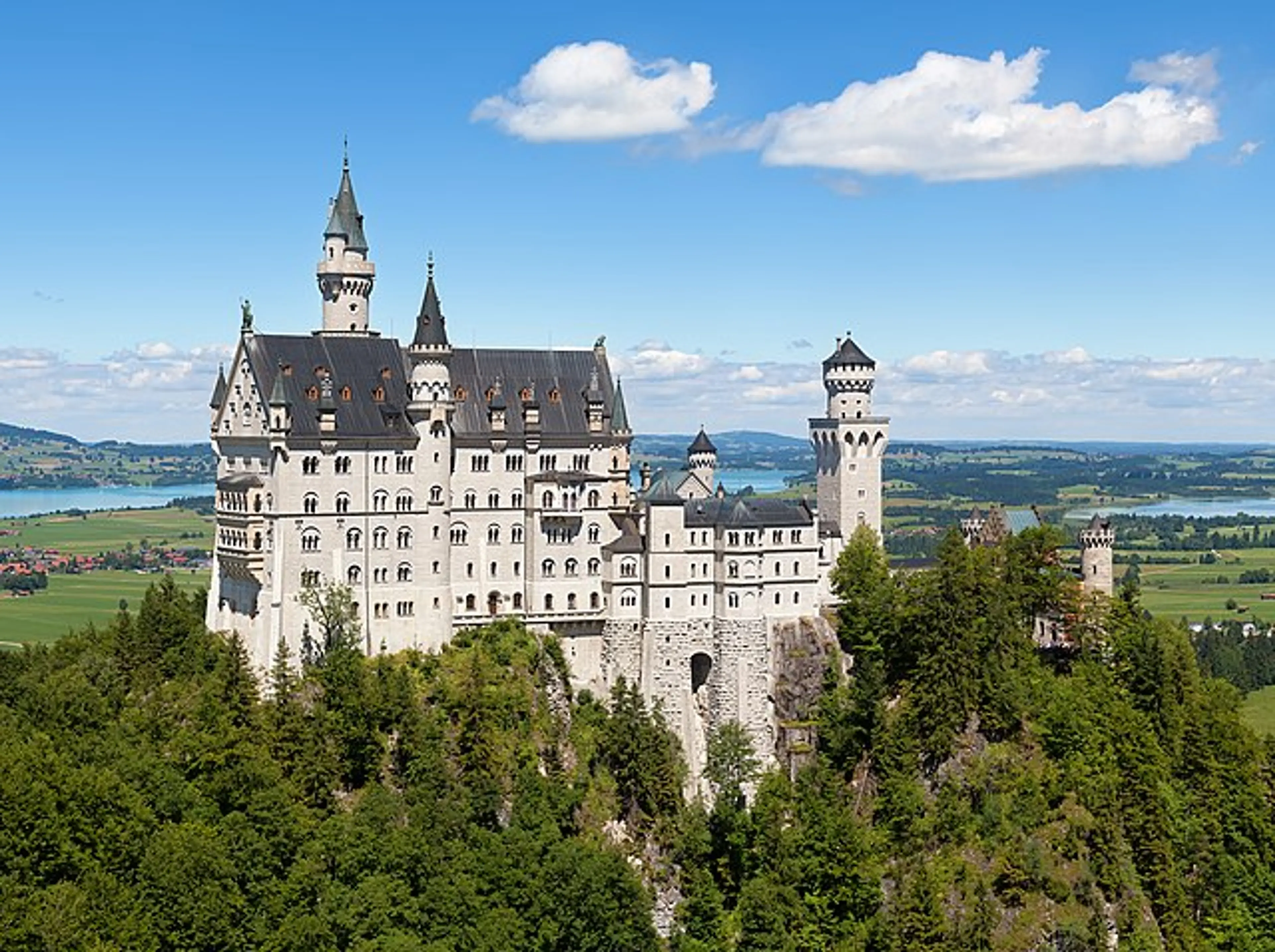
Neuschwanstein Castle
A 19th-century Romanesque Revival palace on a rugged hill above the village of Hohenschwangau.
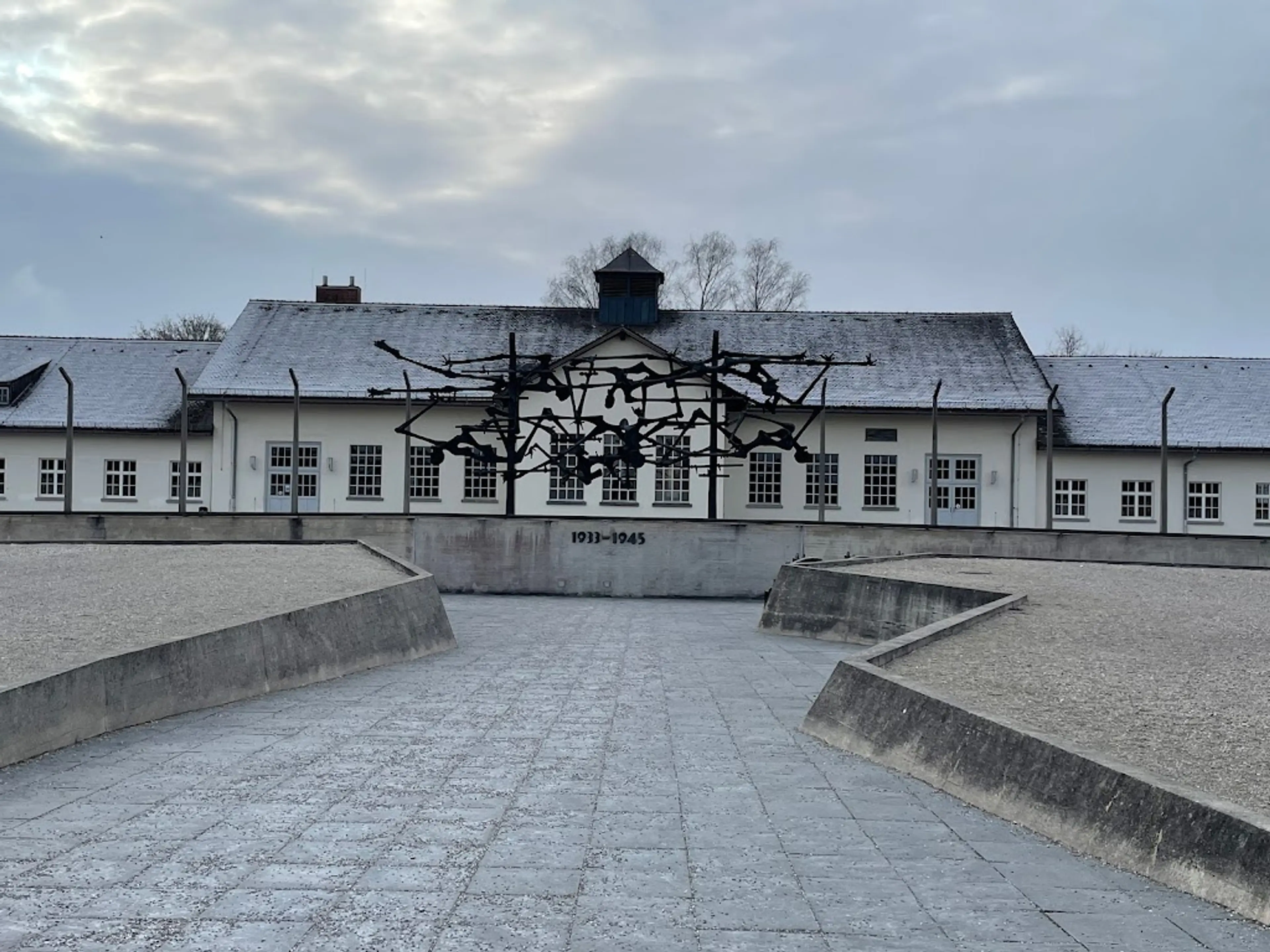
Dachau Concentration Camp
A memorial site, and the first of the Nazi concentration camps opened in Germany.
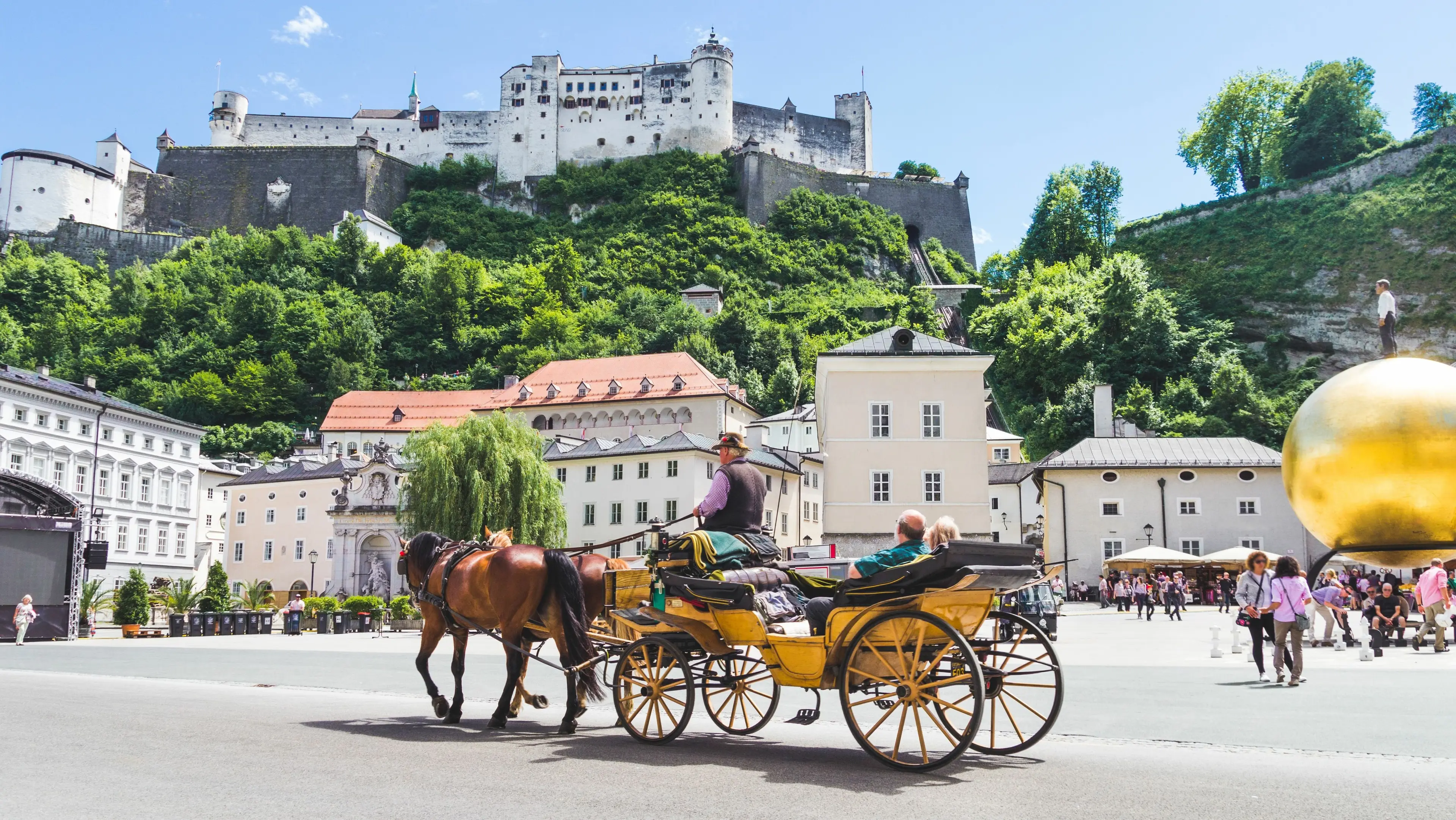
Salzburg
The birthplace of Mozart, Salzburg is a city in Austria known for its baroque architecture.
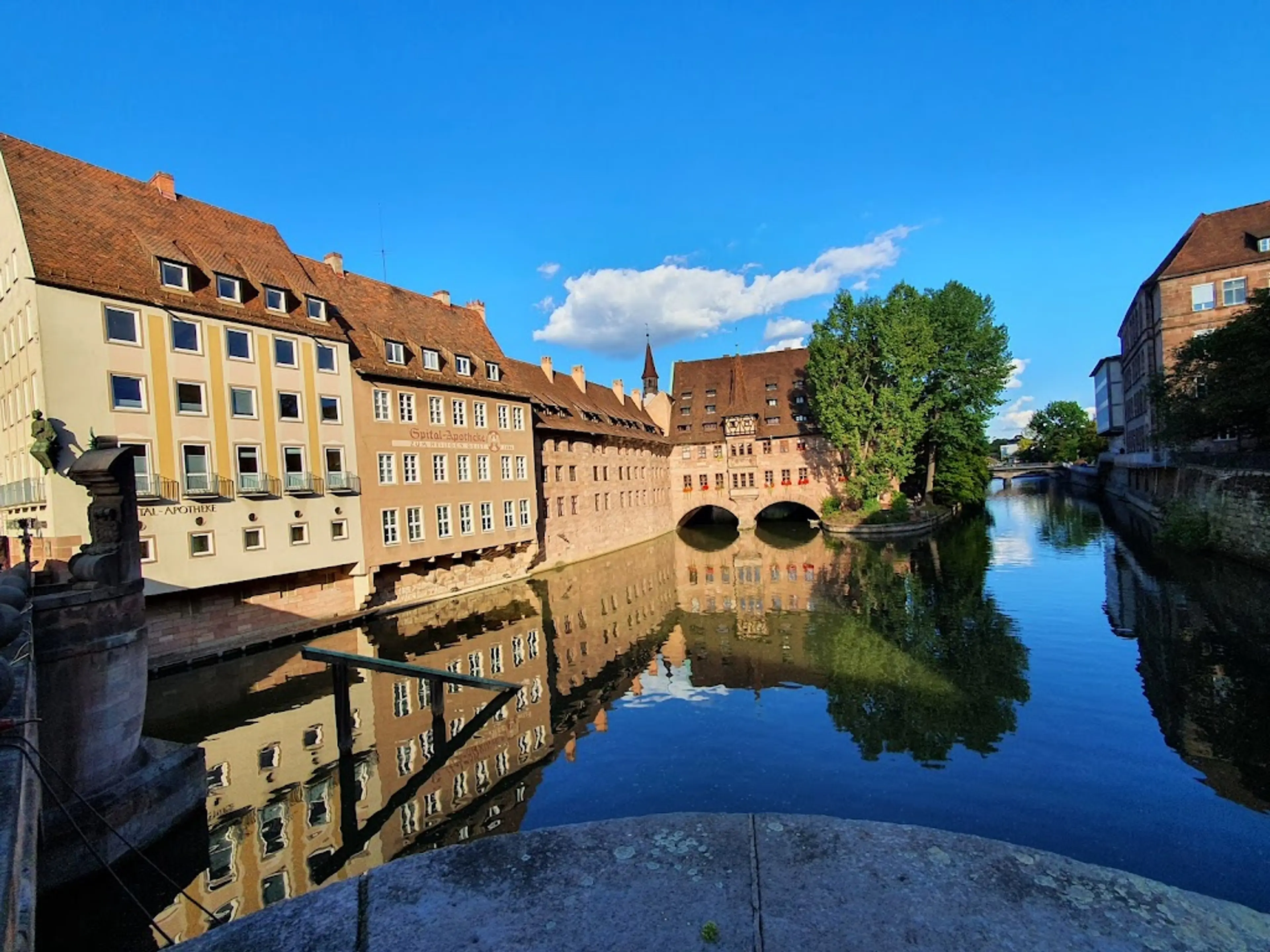
Nuremberg
Known for its medieval architecture, including the fortress Kaiserburg and the walled old town.
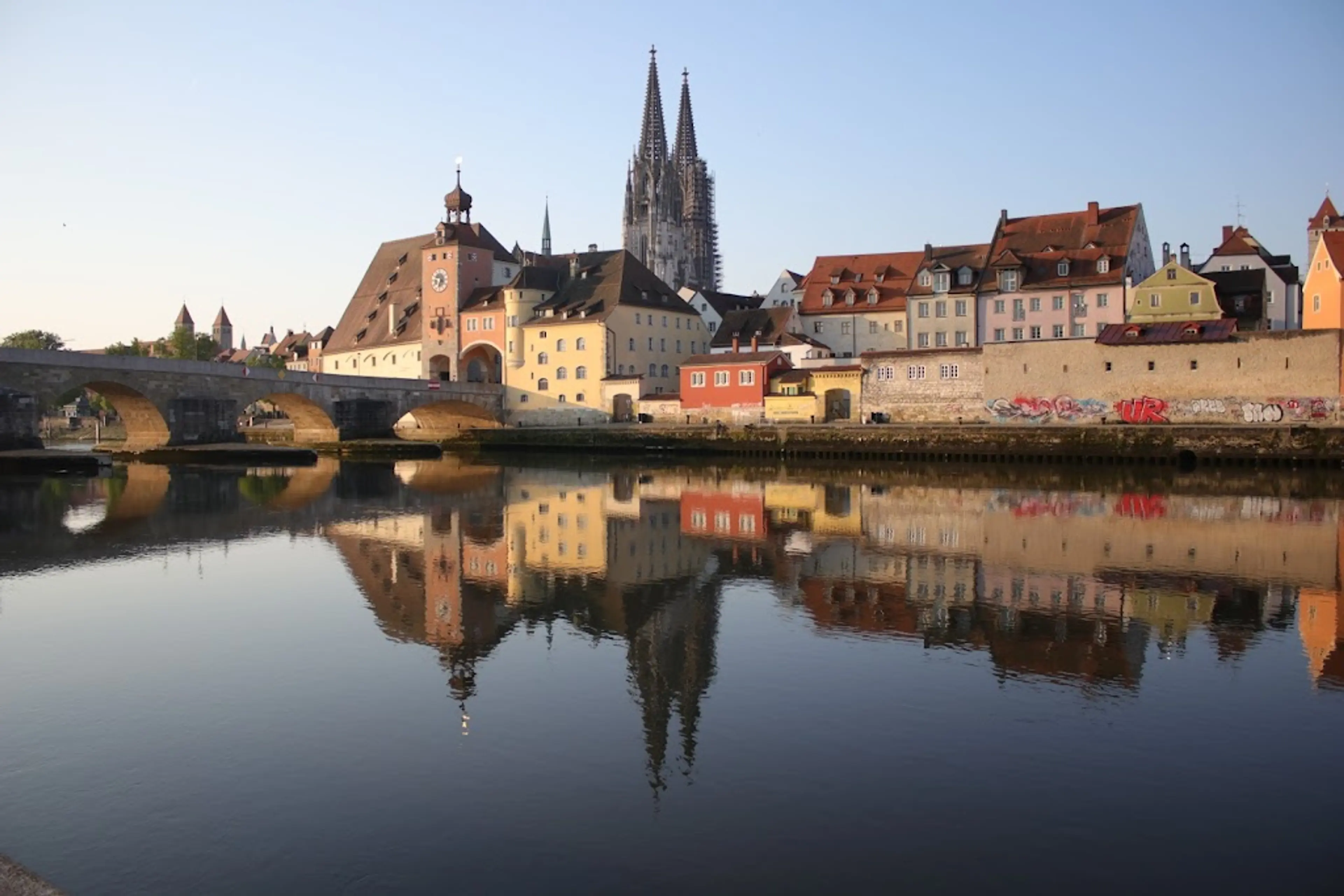
Regensburg
A city in southeast Germany, known for its well-preserved medieval core.
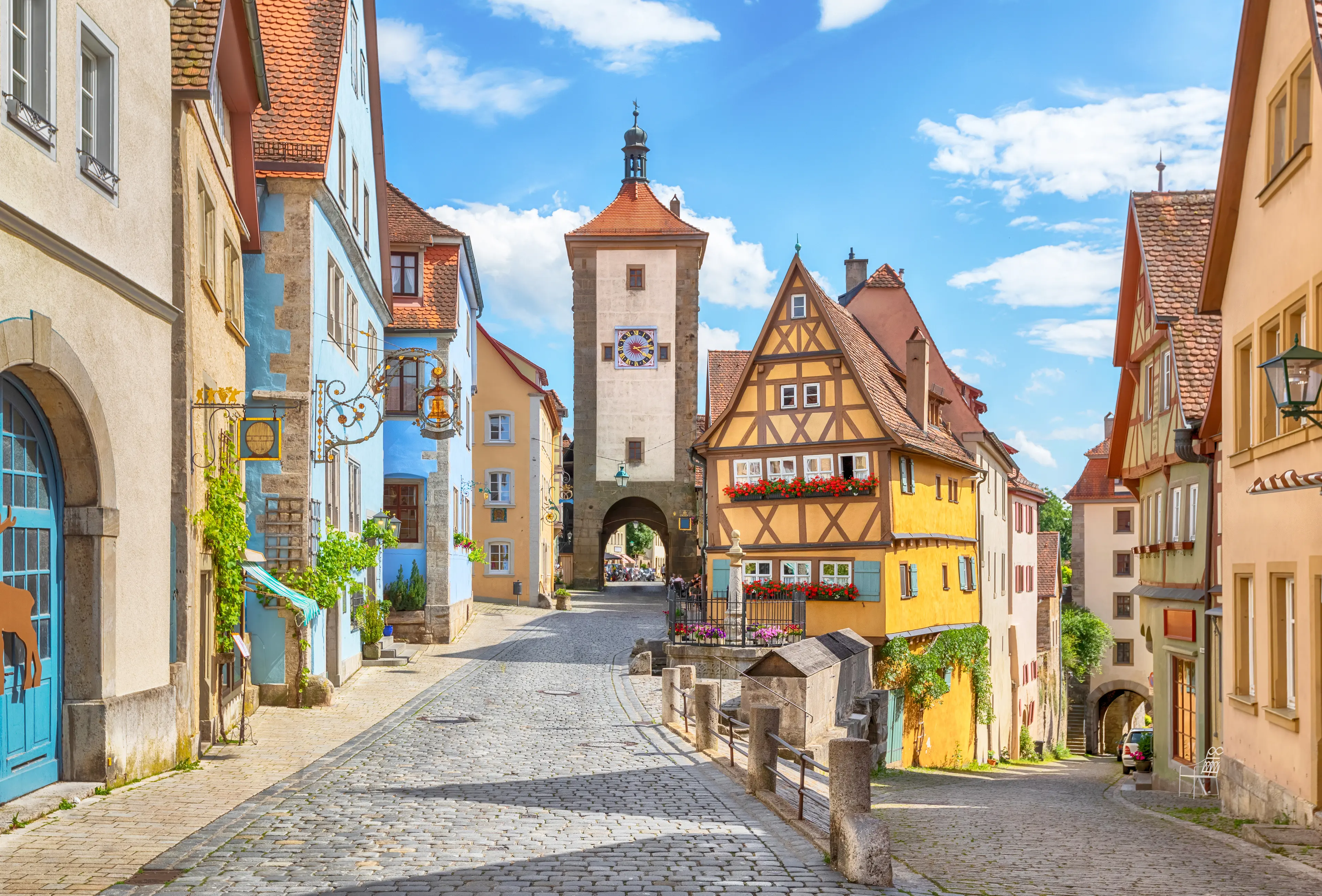
Rothenburg ob der Tauber
A well-preserved medieval old town, a destination for tourists from around the world.
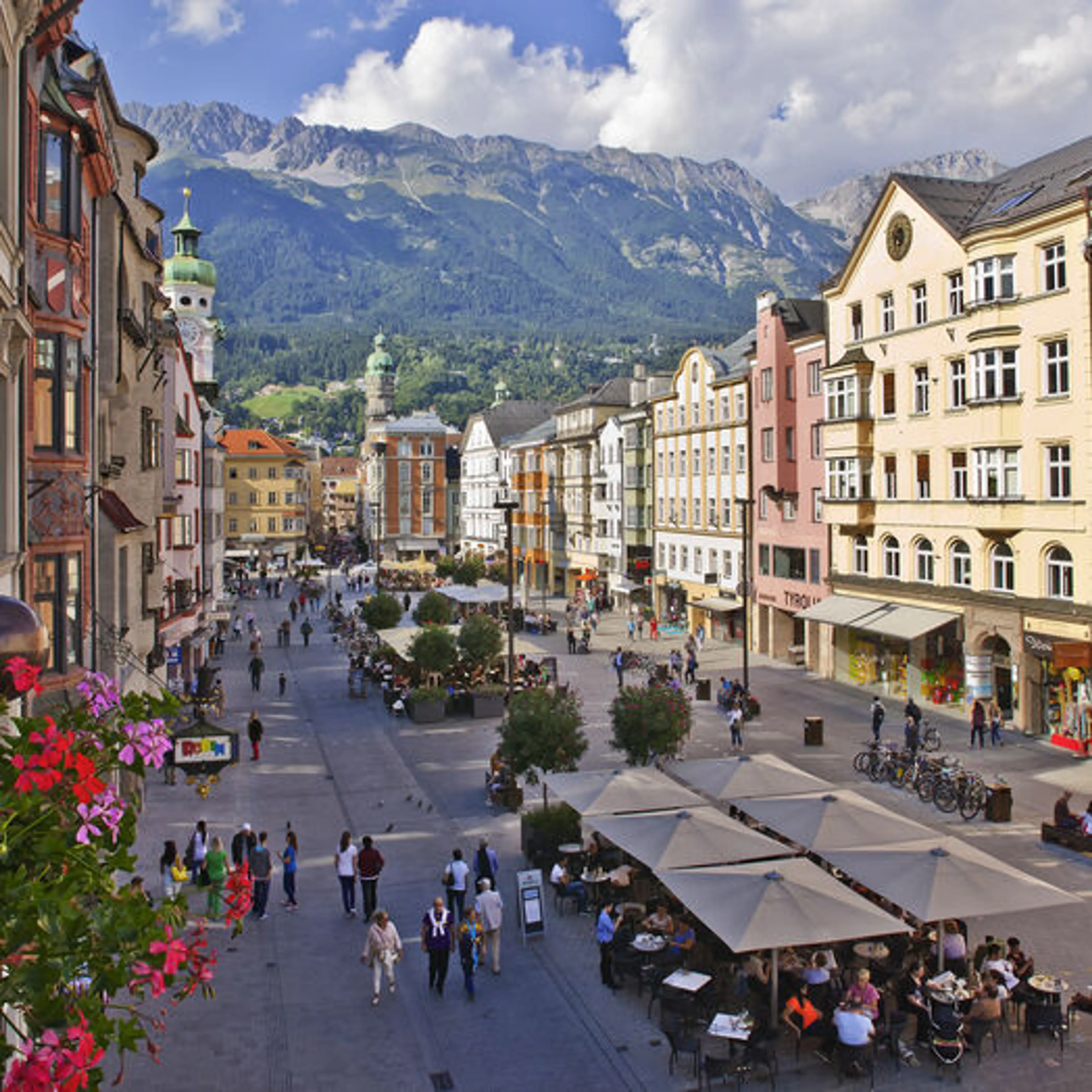
Innsbruck
The capital of Austria’s western state of Tyrol, a city in the Alps that's long been a destination for winter sports.
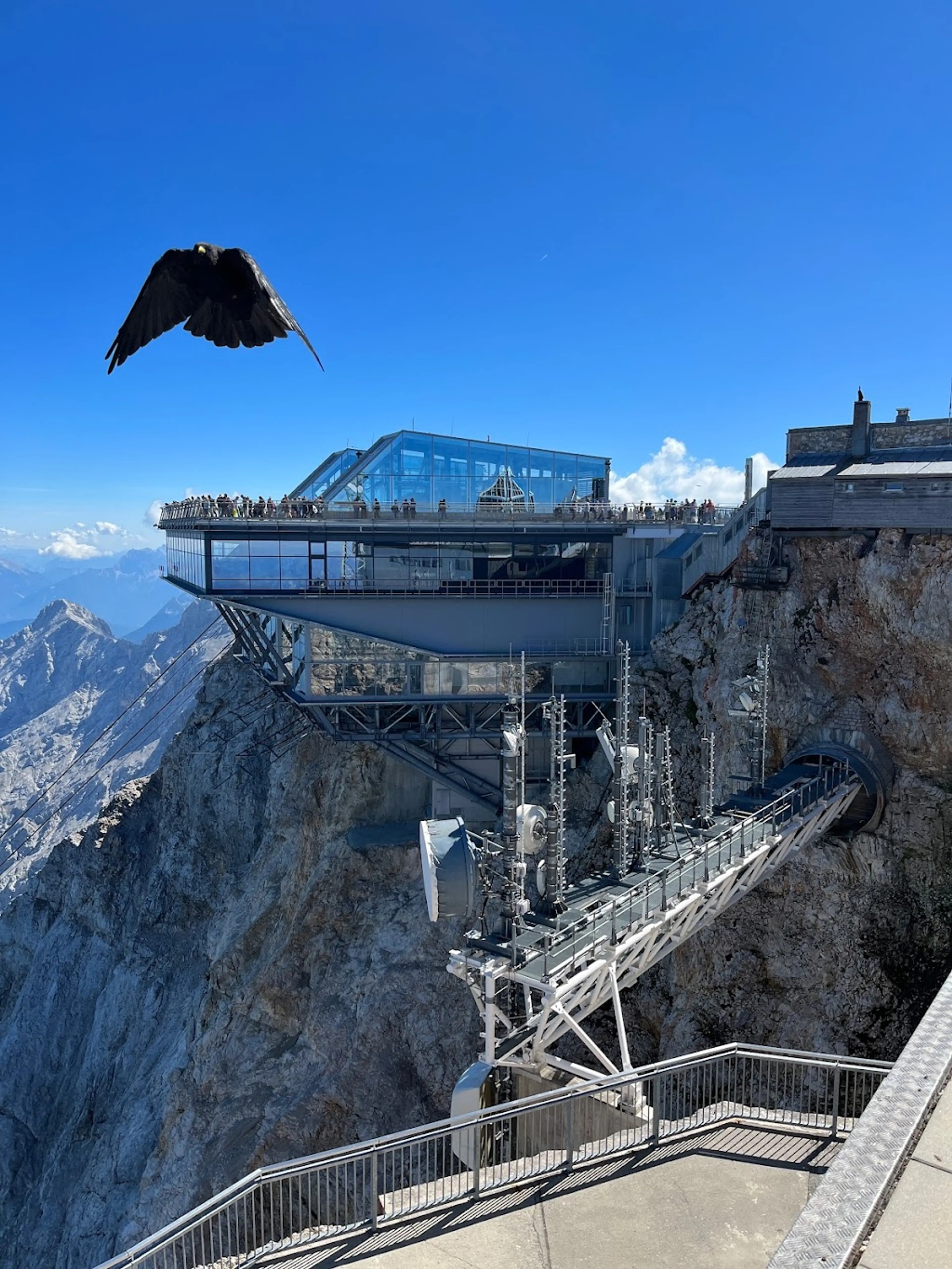
Zugspitze
The highest peak in Germany, offering panoramic views and skiing.
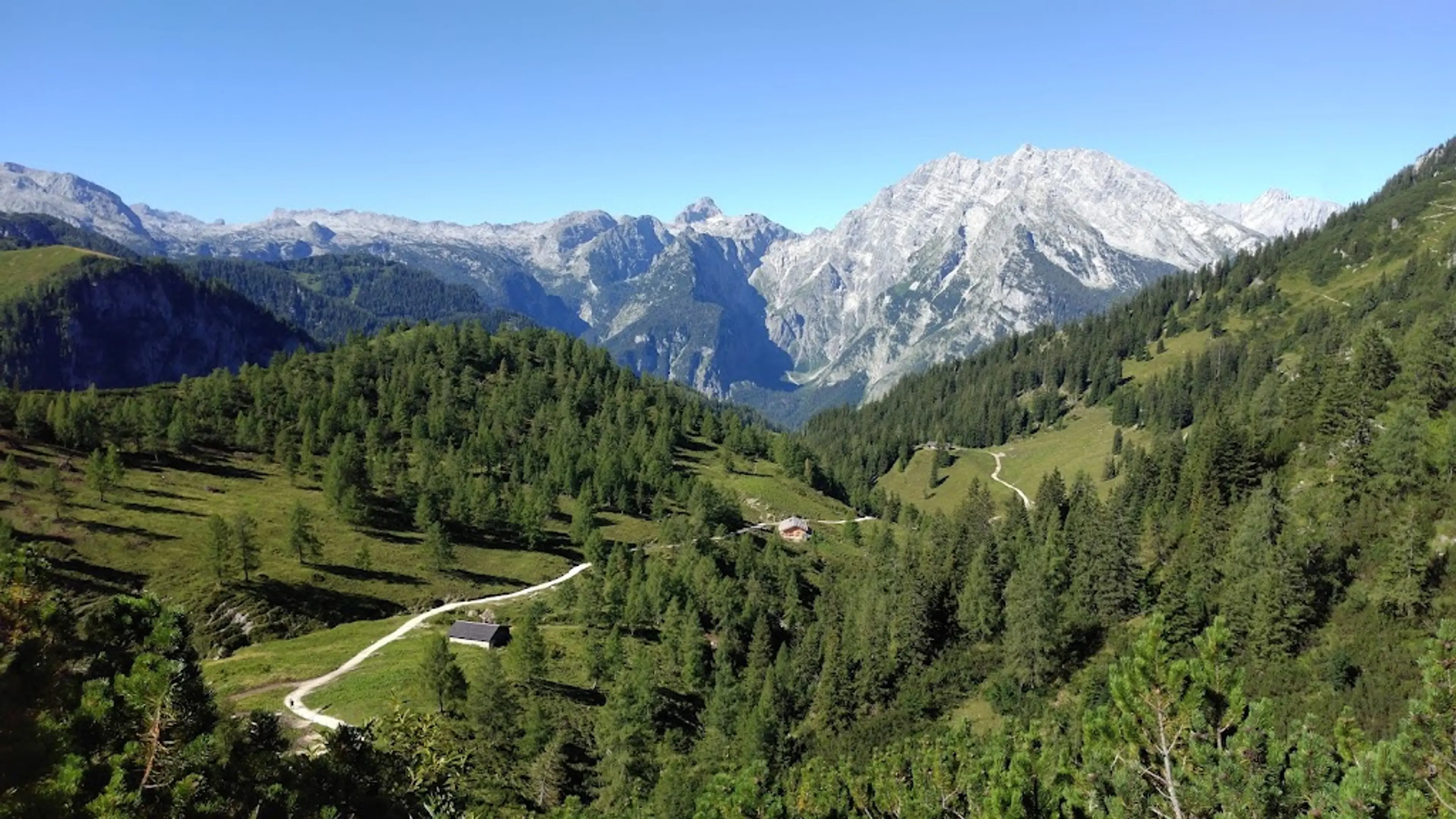
Berchtesgaden National Park
A beautiful national park in the Bavarian Alps.

Stuttgart
Known for its modern and historical architecture, and for hosting two of the largest car companies in the world.
